8th Session of the Governing Body of the International Treaty on Plant Genetic Resources for Food and Agriculture
11-16 November 2019 | Headquarters of the UN Food and Agriculture Organization (FAO), Rome, Italy
Summary Highlights: 11 - 16 November 2019
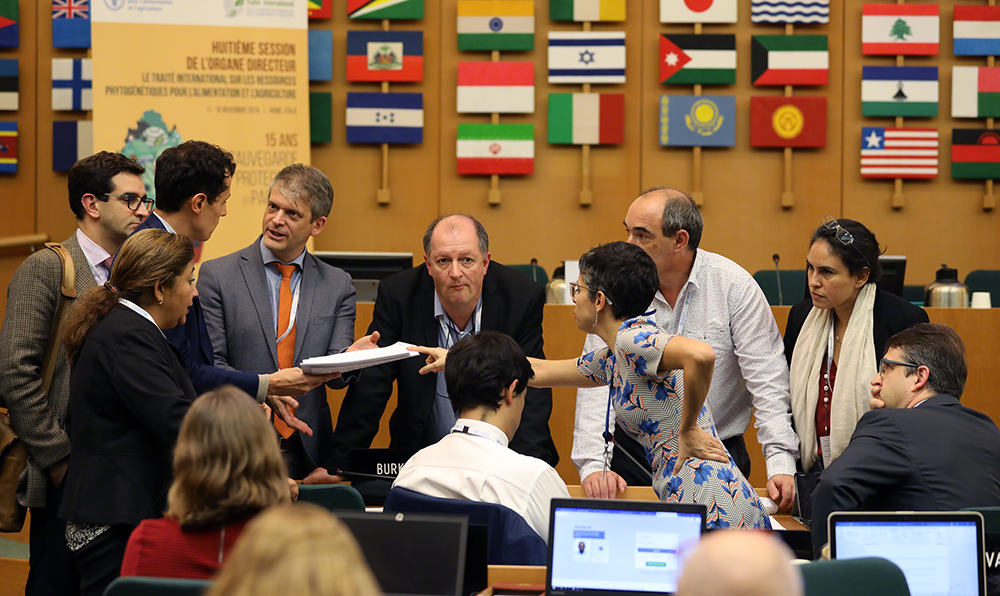
The eighth session of the Governing Body (GB 8) of the International Treaty on Plant Genetic Resources for Food and Agriculture (ITPGRFA or Treaty) met to address a range of policy, implementation, cooperation, and administrative matters of relevance to the Treaty and its Multilateral System (MLS) of access and benefit-sharing (ABS). The main item under discussion concerned a package of measures to enhance the functioning of the MLS, which has been under negotiation for six years and would have resulted in revising the coverage of the MLS and the Standard Material Transfer Agreement (SMTA) used for exchanges of genetic resources in the MLS. Delegates, however, could not reach consensus on such measures, nor on continuing intersessional work on this issue.
GB 8 adopted a series of other resolutions, including on farmers’ rights, conservation and sustainable use of plant genetic resources for food and agriculture (PGRFA), and the Funding Strategy. Still, as many noted with frustration, failure to enhance the MLS indicated it is time for sober contemplation on the future of the Treaty.
Highlights for Saturday, 16 November 2019
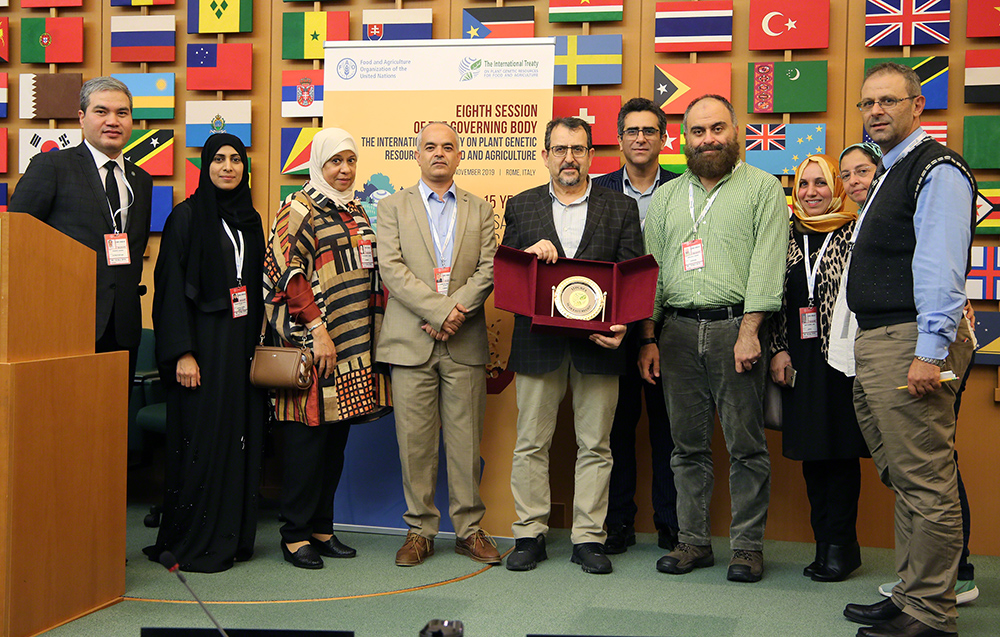
On Saturday morning, plenary reviewed draft resolutions, including on cooperation with other international organizations and the Funding Strategy.
GB 8 Chair Christine Dawson (US) presented a compromise package on enhancing the Multilateral System (MLS) of access and benefit-sharing, including drafts on: a resolution; a revised Standard Material Transfer Agreement (SMTA); an amendment to expand Annex I of the Treaty; terms of reference for an Ad Hoc Advisory Technical Committee on the SMTA and the MLS; and a proposal on consideration of potential implications of the use of digital sequence information/genetic sequence data for the Treaty objectives under the Multi-Year Programme of Work. Delegates considered the proposal during lunchtime.
In the afternoon, plenary accepted with appreciation India’s proposal to host the ninth meeting of the Governing Body (GB 9); elected new Compliance Committee members, new Bureau members, and Yasmina El Bahloul (Morocco) as GB 9 Chair; and expressed gratitude for retiring Javad Mozafari (Iran). Delegates then addressed the proposal for a package of measures to enhance the MLS.
Developing countries rejected the proposal, noting it lacks balance with regard to fair and equitable benefit-sharing and it does not adequately address genetic sequence data. They also noted it was tabled too late in the meeting, drawing attention to limited time left to review it. Many supported continuing work within the Working Group on enhancing the MLS. Cameroon warned that the future of the Treaty is at stake, and asked to explore all options for a process forward. Brazil, supported by many, said the proposal cannot constitute the basis for further negotiations, stressing that:
- the expansion plan included a trigger mechanism solely related to the amendment of Annex I, with no trigger related to the Benefit-sharing Fund (BSF), while the relevant BSF target was not even discussed; and
- a number of creative solutions, including a growing rate for the subscription system proposed during the closed group proceedings, were not considered because they were opposed by one country only.
Argentina called on countries interested in multilateralism to continue discussions. India, with others, noted that a solution will be unattainable unless the implications of genetic resource digitalization on the objectives of the Treaty are addressed.
Australia, Canada, Finland, the US, and Japan called for a pause in deliberations on enhancing the MLS, with Australia suggesting focus on building mutual understanding on digital sequence information and its implications. Japan encouraged informal discussions between parties.
GB 8 Chair Dawson noted plenary’s clear indication that the proposal is not accepted, further noting lack of consensus on continuing intersessional work on the issue.
Plenary then reviewed the meeting’s report. A lengthy discussion ensued on the section of the report reflecting the lack of consensus on measures to enhance the MLS, lack of decision on an intersessional process, and future steps, if any, regarding informal consultations between parties and the possibility for GB 9 to address the issue. Delegates eventually agreed to: state that GB 8 could not reach consensus; note the need to take stock and assess next steps for further work; and note that the GB had different views on the way forward. Plenary then adopted the report and resolutions on remaining agenda items.
Chair Dawson closed the session at 12:39 am.
IISD Reporting Services, through its Earth Negotiations Bulletin (ENB) meeting coverage, is providing daily web coverage and daily reports from the 8th Session of the Governing Body. In addition, IISD Reporting Services published a summary and analysis report from the meeting, which is now available in HTML and PDF.
Photos by IISD/ENB | Mike Muzurakis
For photo reprint permissions, please follow instructions at our Attribution Regulations for Meeting Photo Usage Page
+ Visit the web coverage for Saturday, 16 November 2019
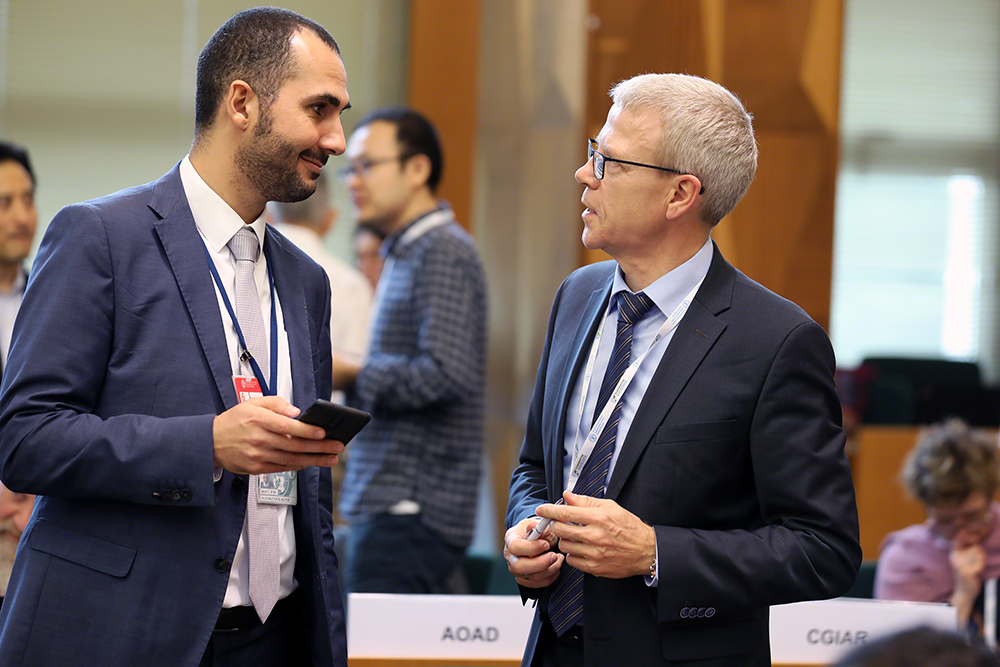
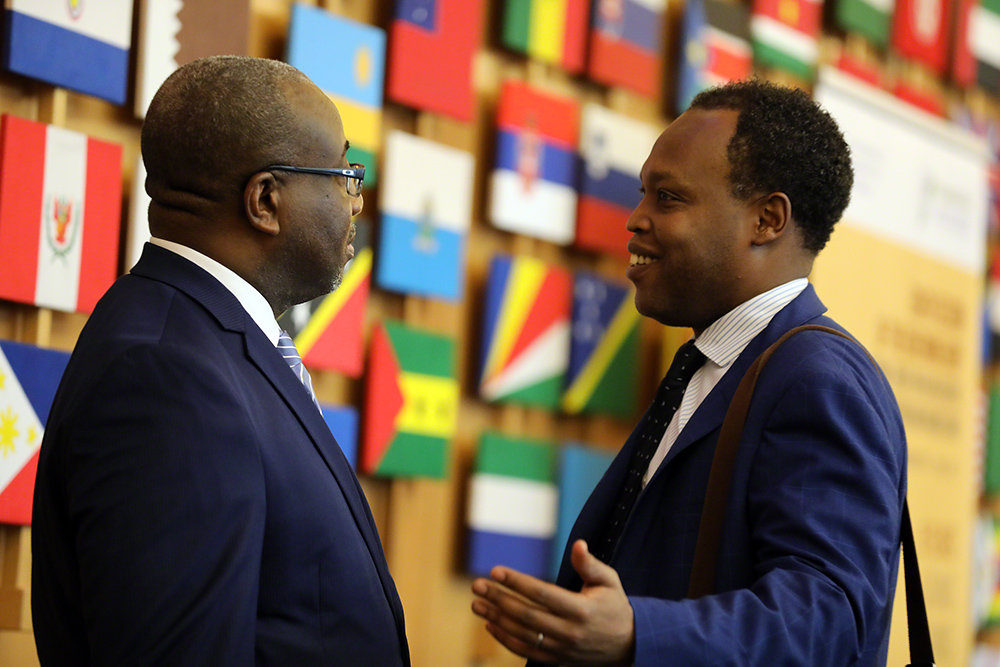
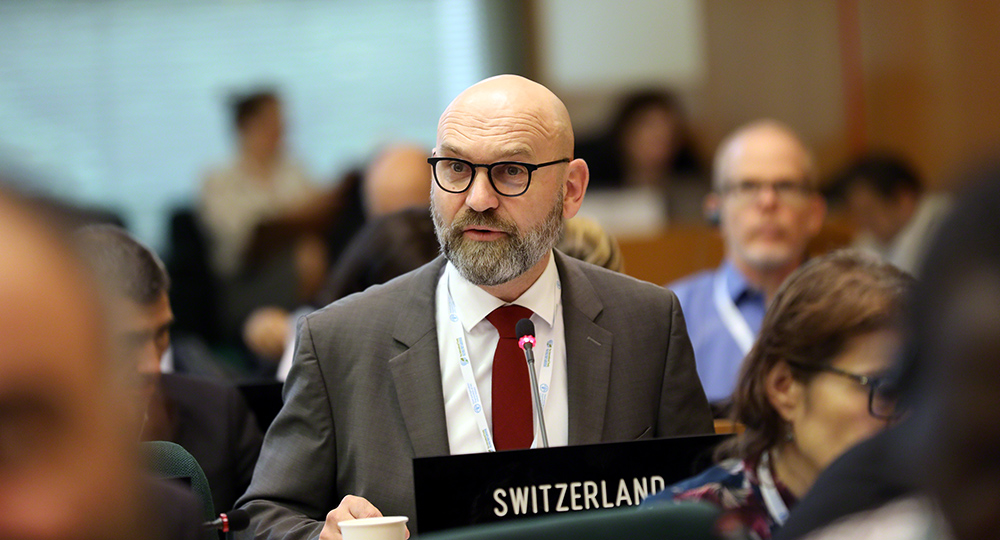
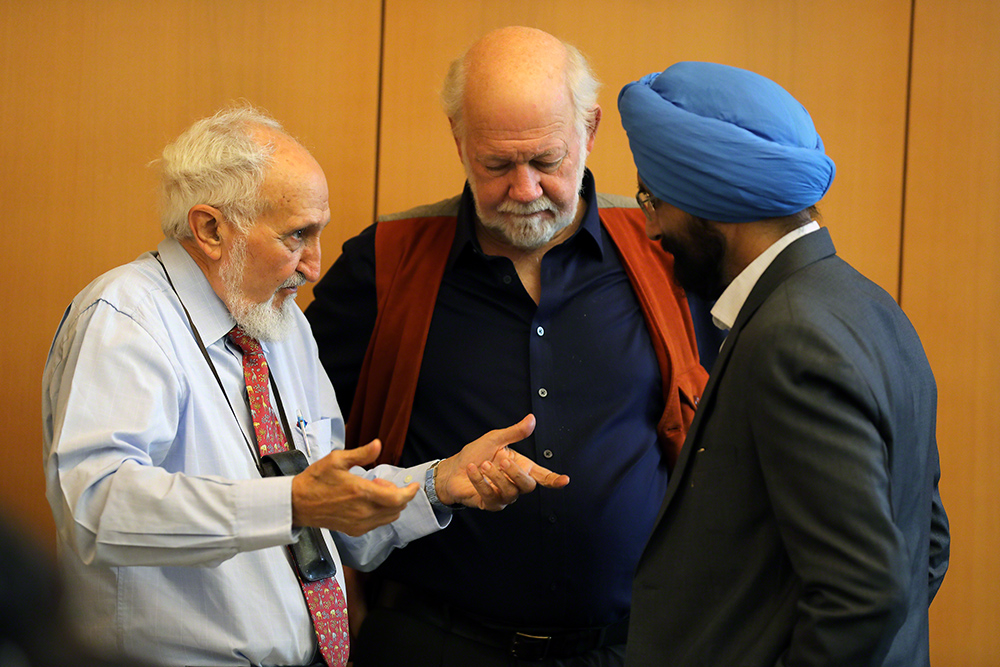
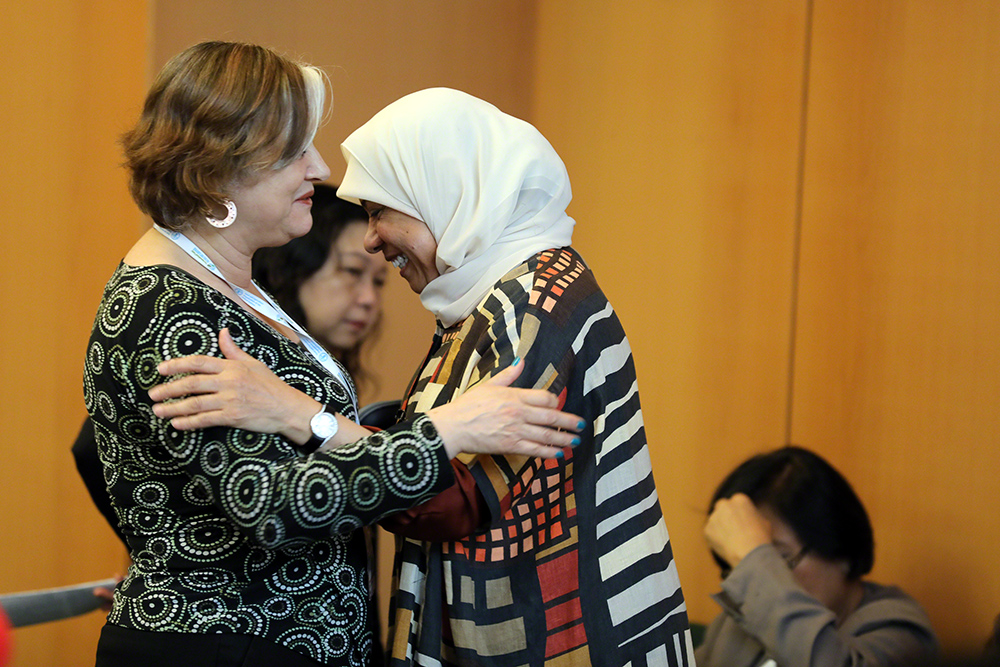
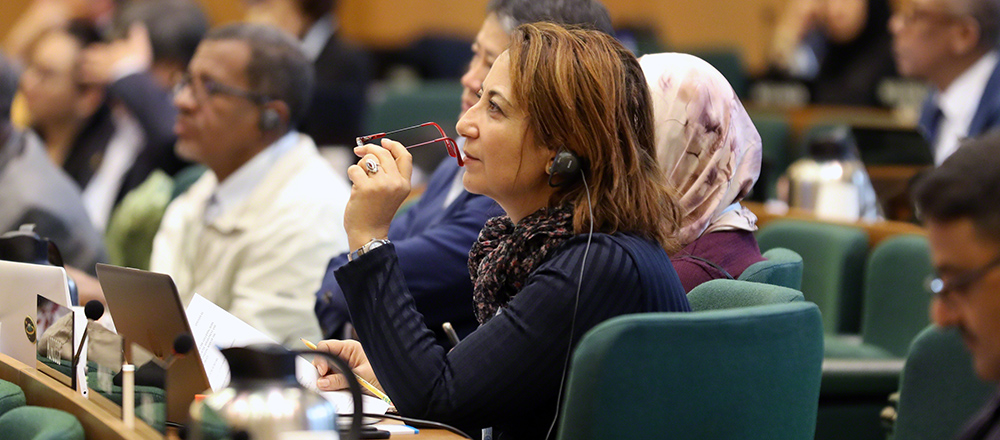
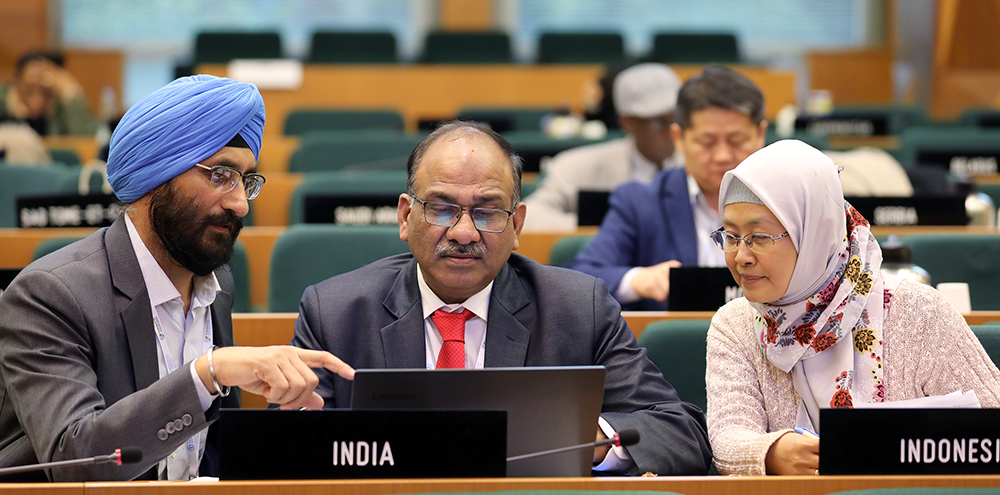
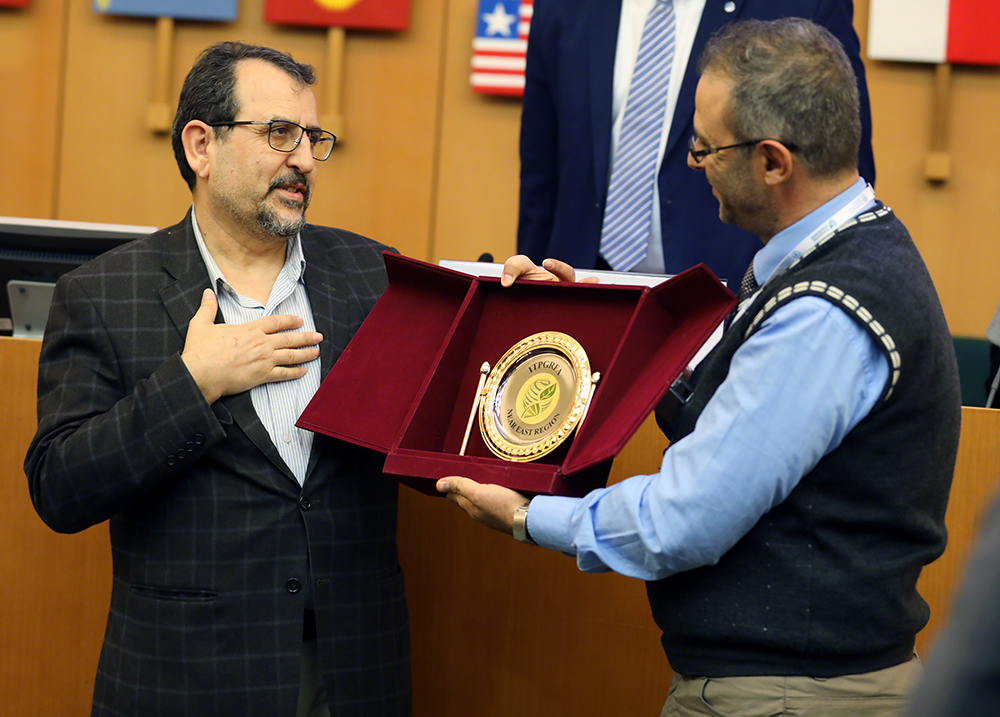
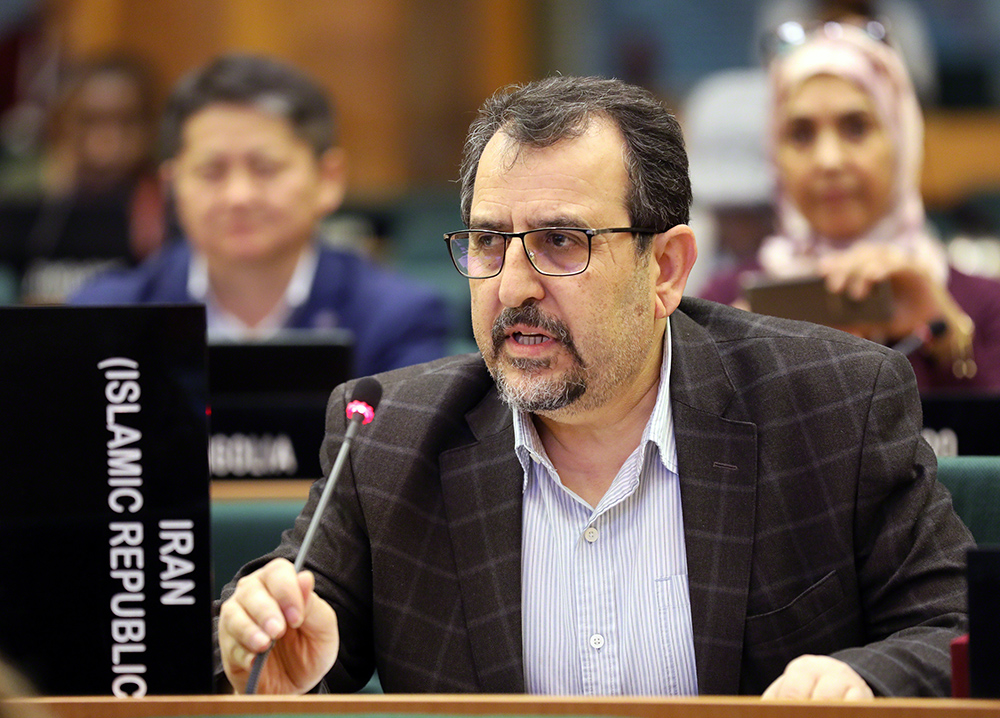
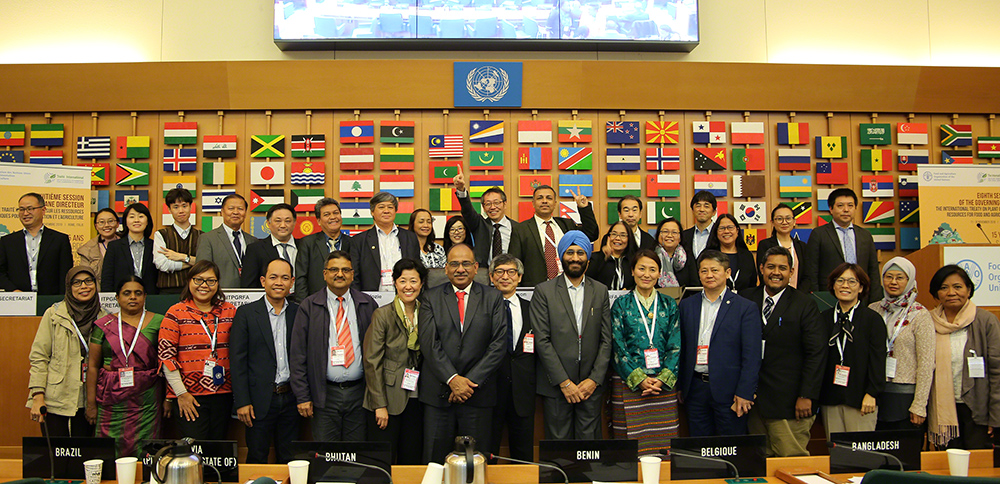
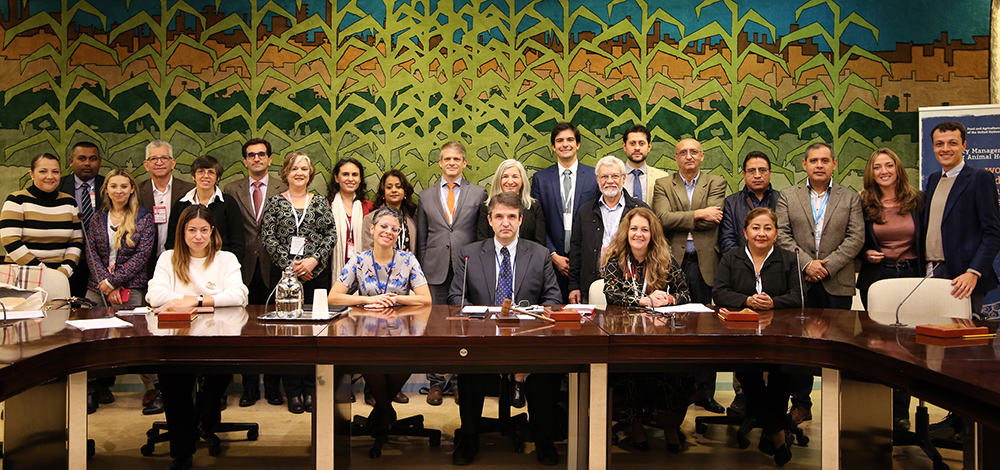
Highlights for Friday, 15 November 2019
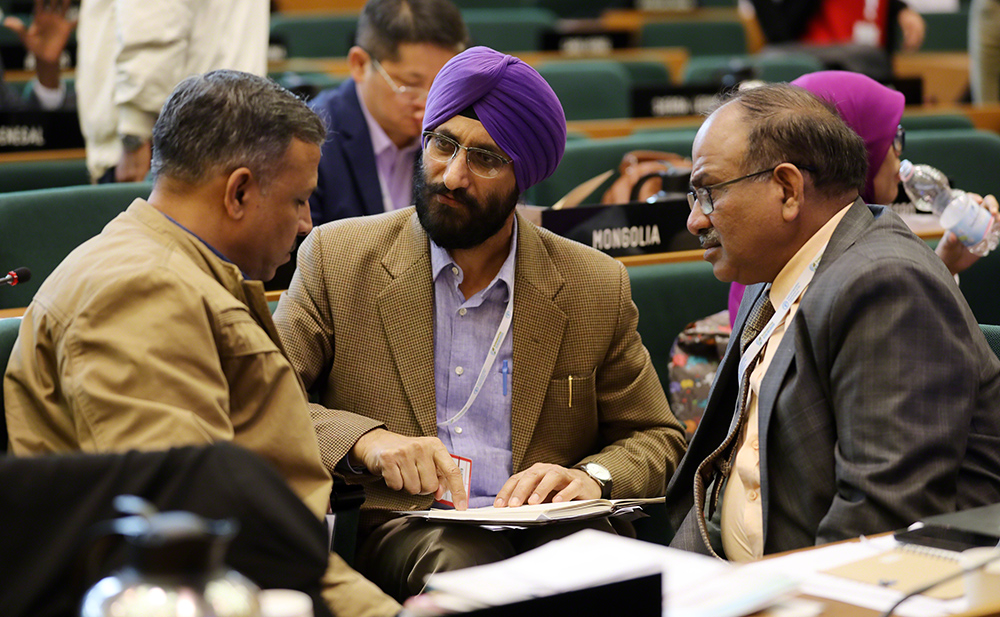
Delegates to the eighth session of the Governing Body (GB 8) of the International Treaty on Plant Genetic Resources for Food and Agriculture (ITPGRFA or Treaty) met in a morning and evening plenary to hear a report from the closed group on enhancing the Multilateral System (MLS), address administrative matters, and review draft resolutions. The contact group on conservation and sustainable use of plant genetic resources for food and agriculture (PGRFA) met in the afternoon. The closed group on the MLS and the budget committee met throughout the day and into the night.
In the morning, Kathryn Youel Page (US) and Renata Negrelly Nogueira (Brazil), Co-Chairs of the closed group on enhancing the MLS, announced they would circulate a Co-Chairs’ draft of the revised Standard Material Transfer Agreement (SMTA) text by 2:00 pm, for consideration by the group in the afternoon. The proposal included a reference to digital sequence information with regard to benefit-sharing obligations, reading that the user of MLS material “may have used” passport data and other non-confidential descriptive information, including genetic sequence data.
Plenary endorsed renewal of the term of Secretary Kent Nnadozie for two years and approved draft resolutions on farmers’ rights and the contribution of FAO to the implementation of the Treaty, without discussion. Delegates also addressed draft resolutions on, among other issues:
- policy guidance to the Global Crop Diversity Trust;
- cooperation with the Convention on Biological Diversity (CBD), including advice to the Global Environment Facility (GEF);
- cooperation with other international bodies and organizations, including the the International Union for the Protection of New Varieties of Plants (UPOV);
- the Global Information System;
- conservation and sustainable use of PGRFA;
- compliance; and
- the Treaty’s 15th anniversary.
Deliberations continued into the night on procedures for the appointment and renewal of the Secretary.
For more details on the day’s negotiations and to hear what delegates said in the corridors, see our daily Earth Negotiations Bulletin.
+ Visit the web coverage for Friday, 15 November 2019
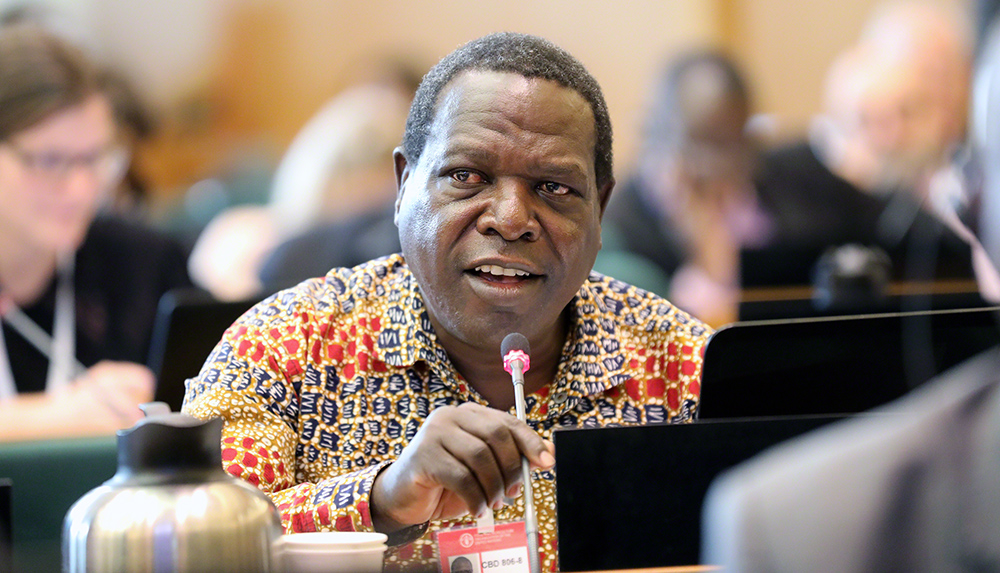
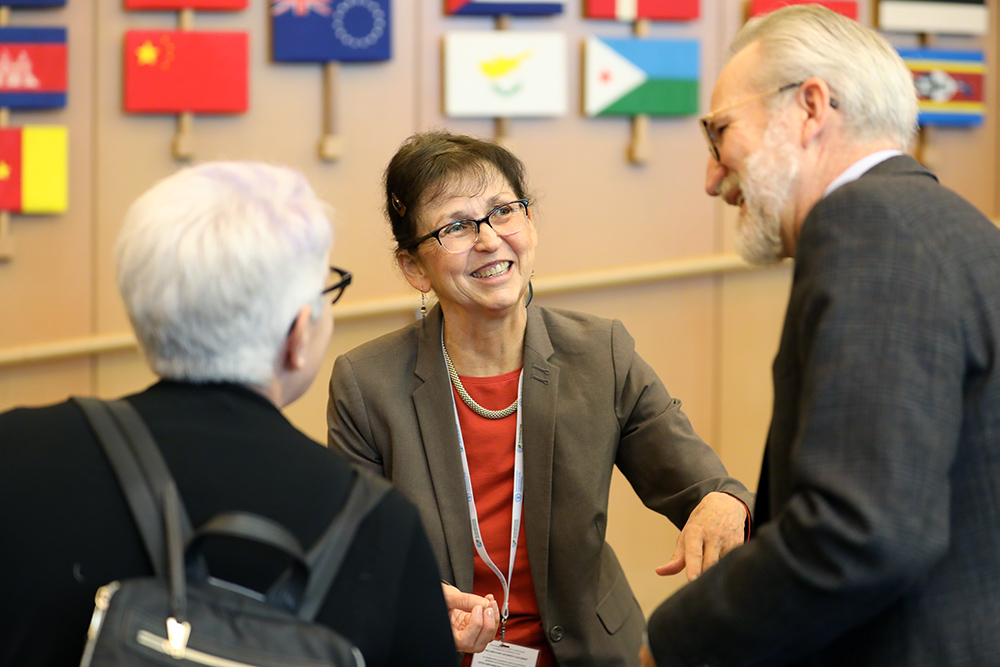
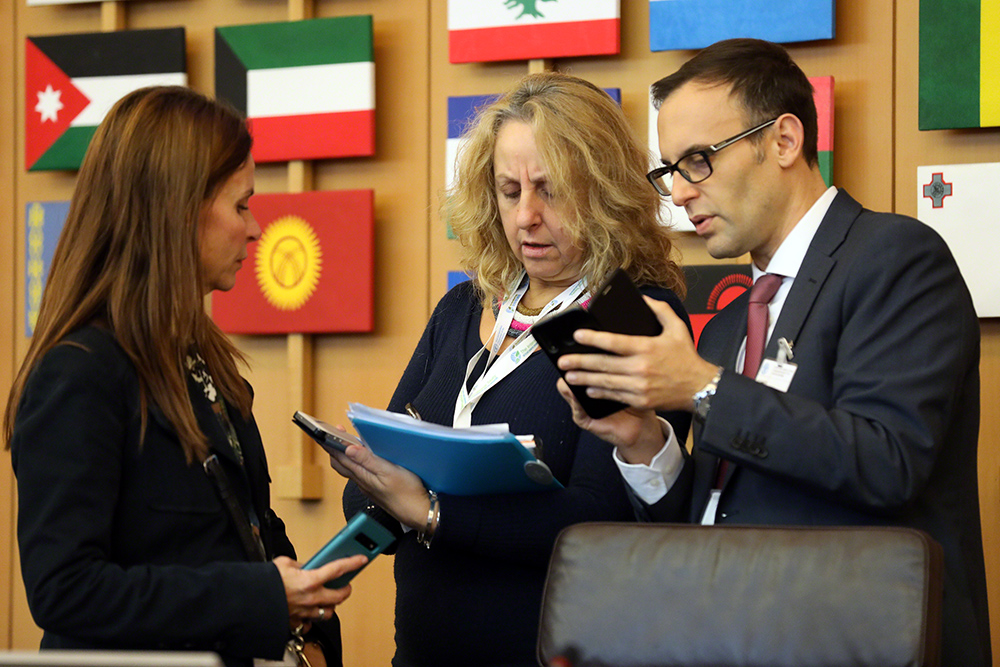
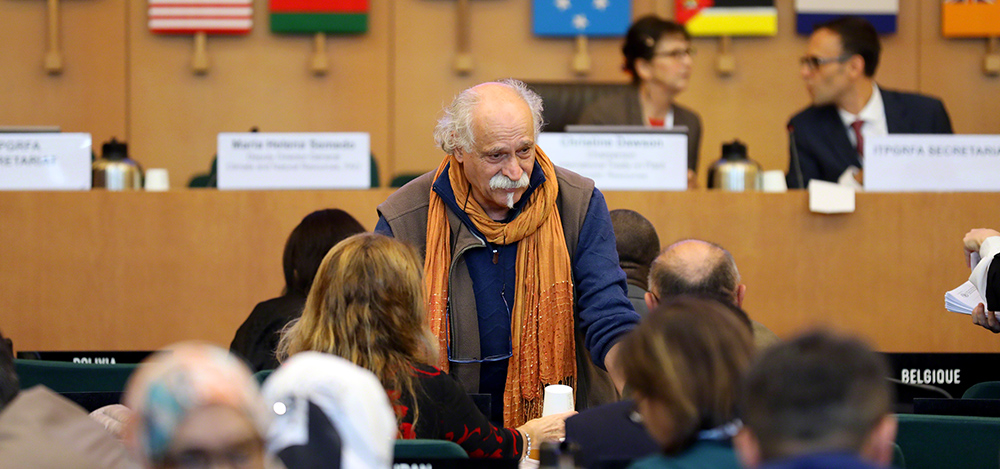
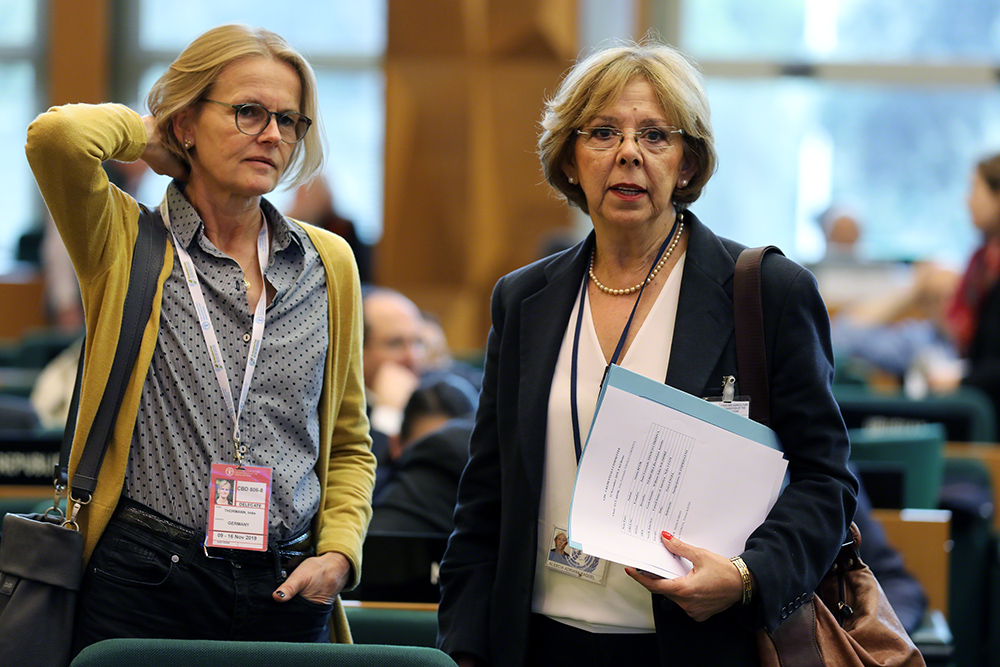
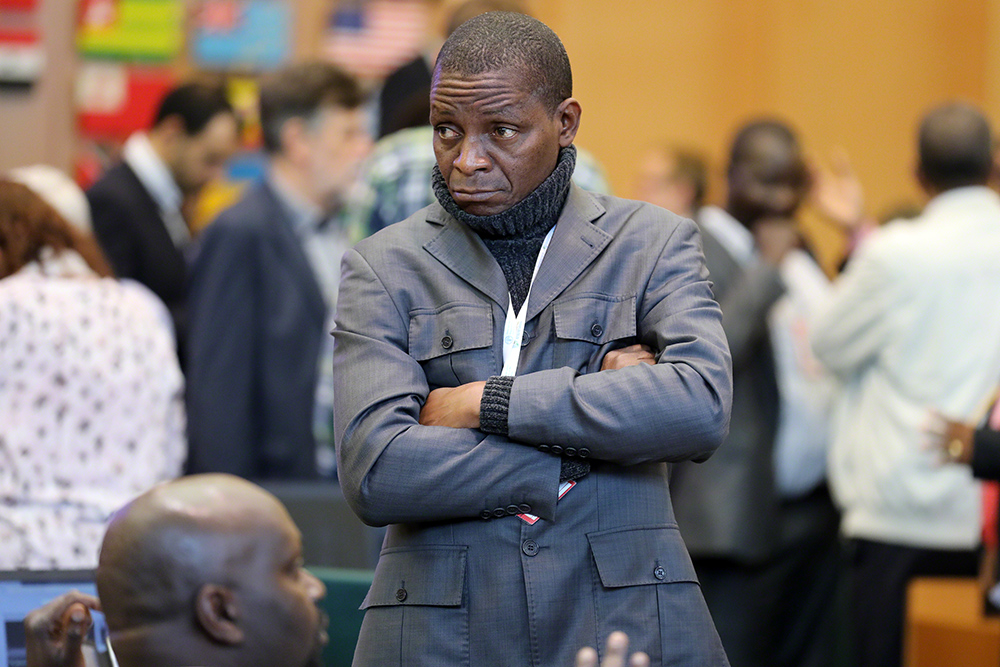
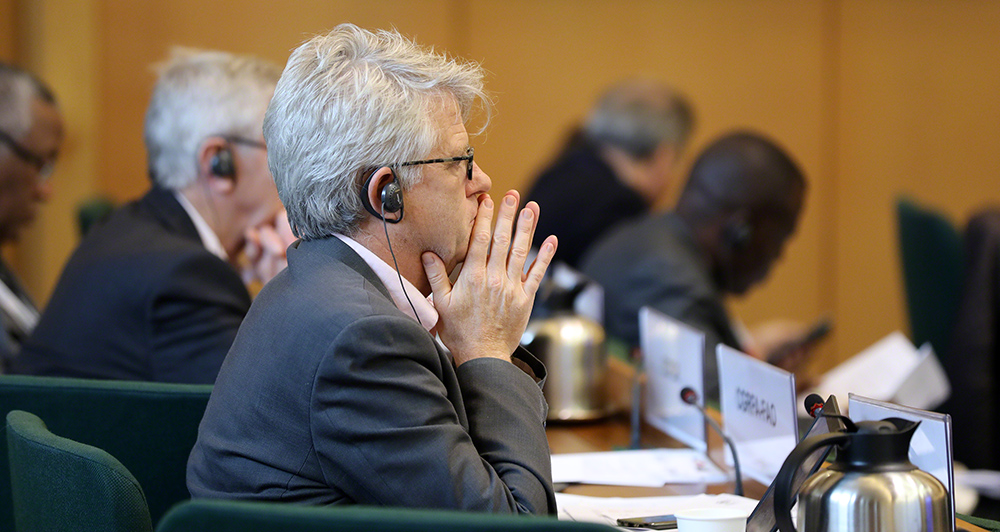
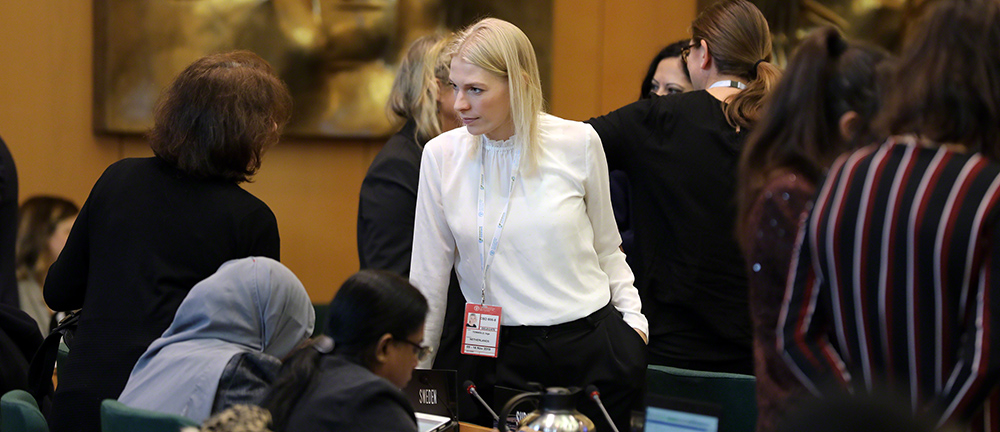
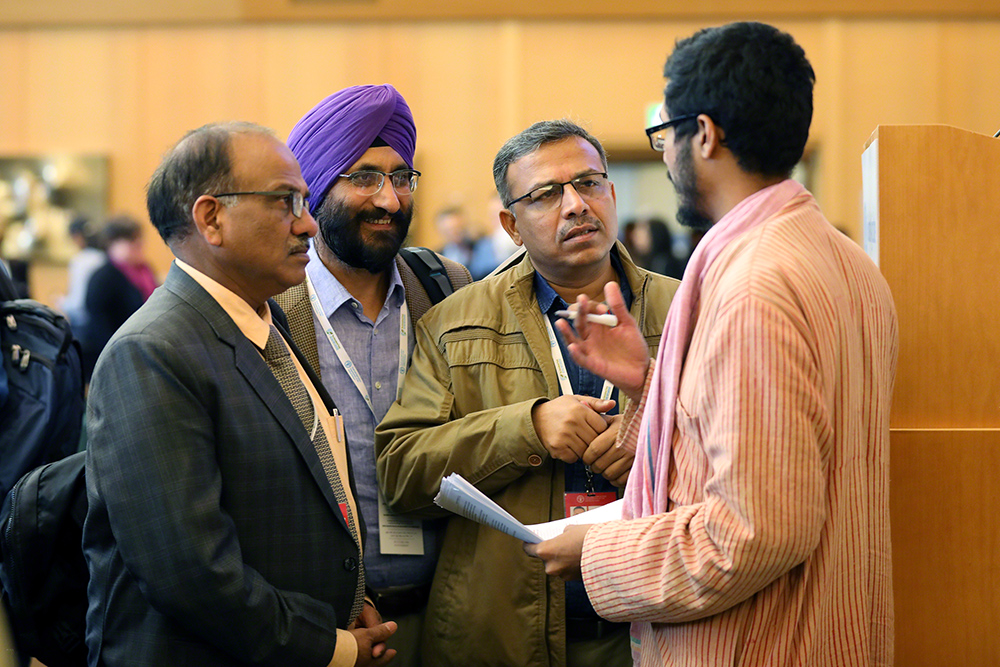
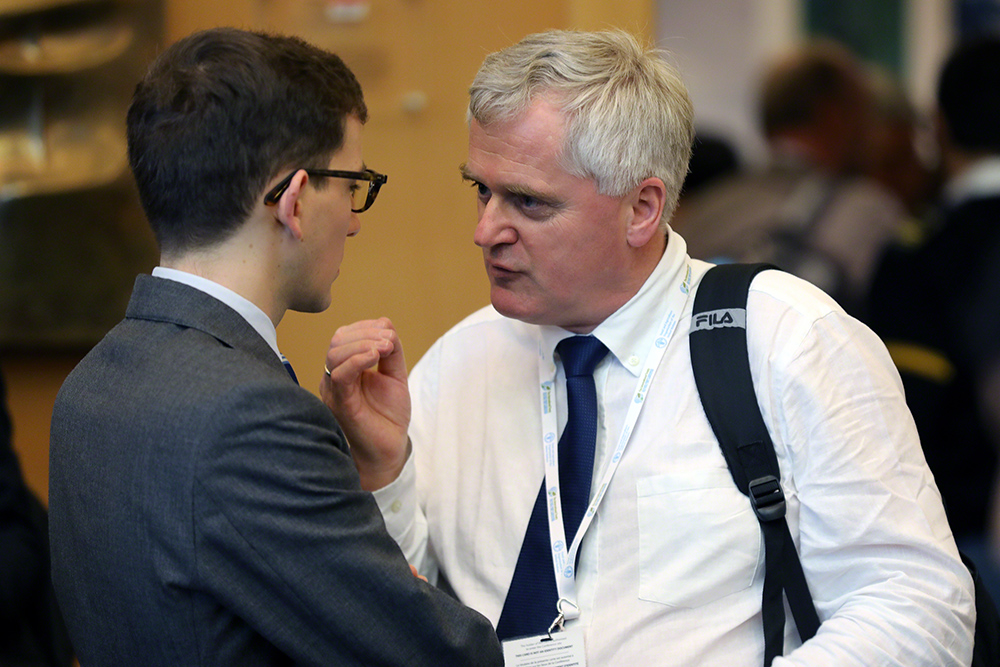
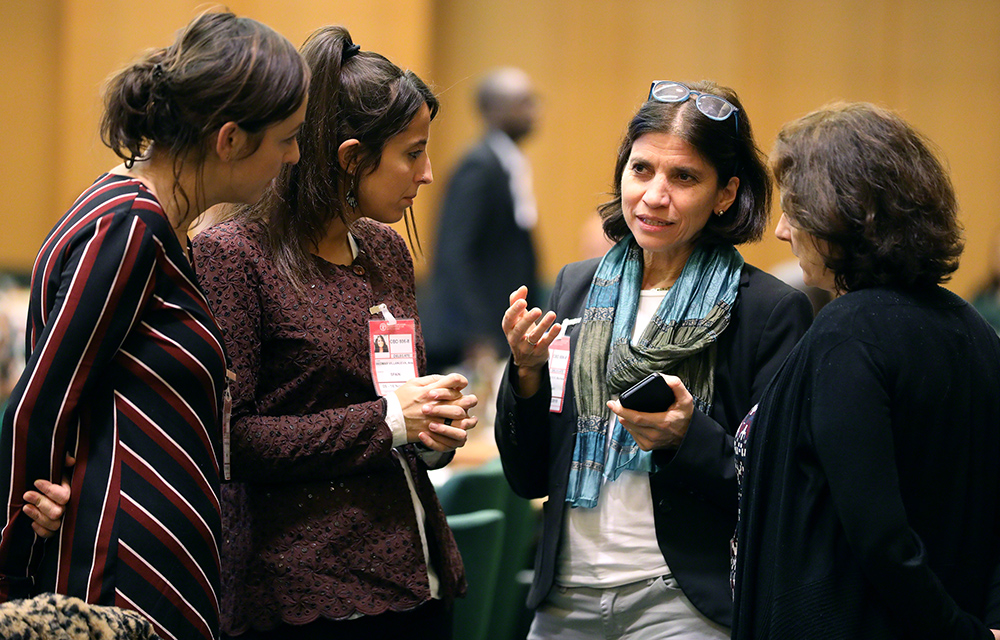
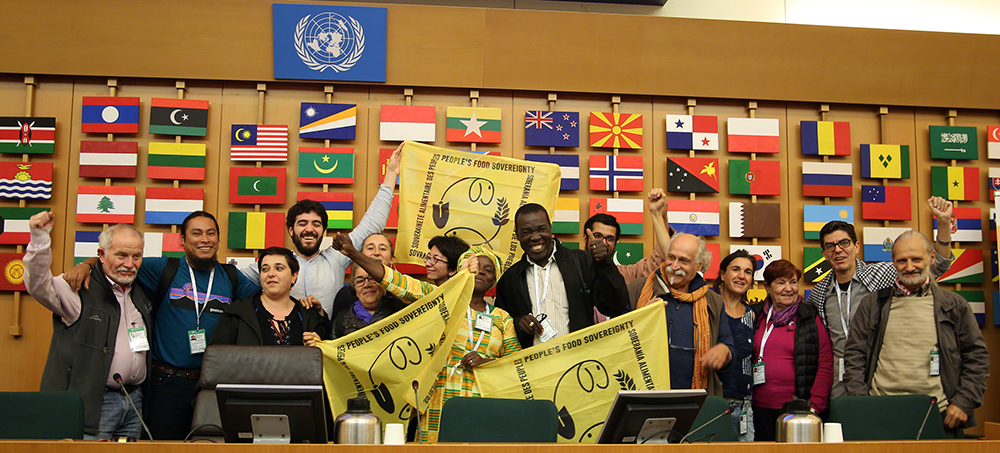
Highlights for Thursday, 14 November 2019
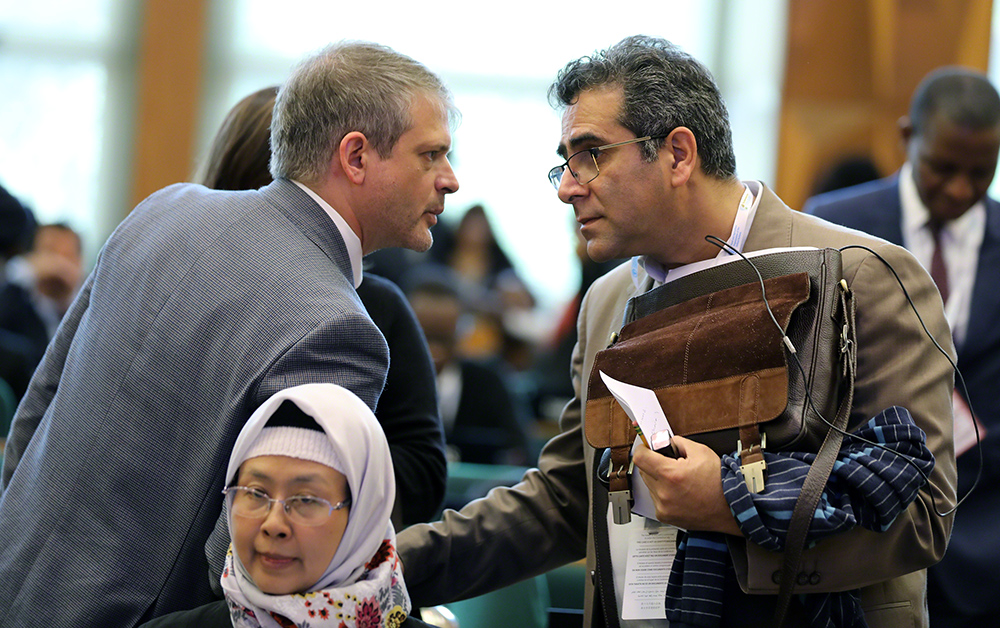
Delegates to the eighth session of the Governing Body (GB 8) of the International Treaty on Plant Genetic Resources for Food and Agriculture (ITPGRFA or Treaty) met in a brief morning plenary to discuss organization of work. GB 8 Chair Christine Dawson (US) informed plenary that discussions held on Wednesday evening in the closed group on enhancing the Multilateral System (MLS) of access and benefit-sharing were very positive, and outlined the day’s schedule as agreed in the Bureau. Kathryn Youel Page (US), Co-Chair of the closed group on enhancing the MLS, expressed her appreciation to the group’s members for a constructive first meeting, noting that a Co-Chairs’ text will be produced during the day.
The closed group on enhancing the MLS continued its deliberations in the afternoon. The group held another meeting in the evening, expanded to include all parties but no observers. Reportedly, the group is considering both a compromise solution as part of the revised Standard Material Transfer Agreement regarding benefit-sharing from digital sequence information (DSI), and a process forward for further consideration.
The contact group on farmers’ rights, co-chaired by Svanhild-Isabelle Batta Torheim (Norway) and Rakesh Chandra Agrawal (India), met in the morning to resume review of the draft resolution. Discussions focused on the terms of reference for the Ad Hoc Technical Expert Group (AHTEG), including in particular its composition, outcome, and compatibility of work with other existing international instruments. Delegates debated in particular:
- whether the AHTEG should be invited to develop voluntary guidelines, in addition to options on national implementation of farmers’ rights; and
- whether to increase the representation of farmers’ organizations in the AHTEG.
Discussions continued in the evening.
A contact group on conservation and sustainable use of plant genetic resource for food and agriculture met in the afternoon. The budget committee, and informal groups on the Global Information System and the Funding Strategy also met throughout the day.
For more details on the day’s negotiations and to hear what delegates said in the corridors, see our daily Earth Negotiations Bulletin.
+ Visit the web coverage for Thursday, 14 November 2019
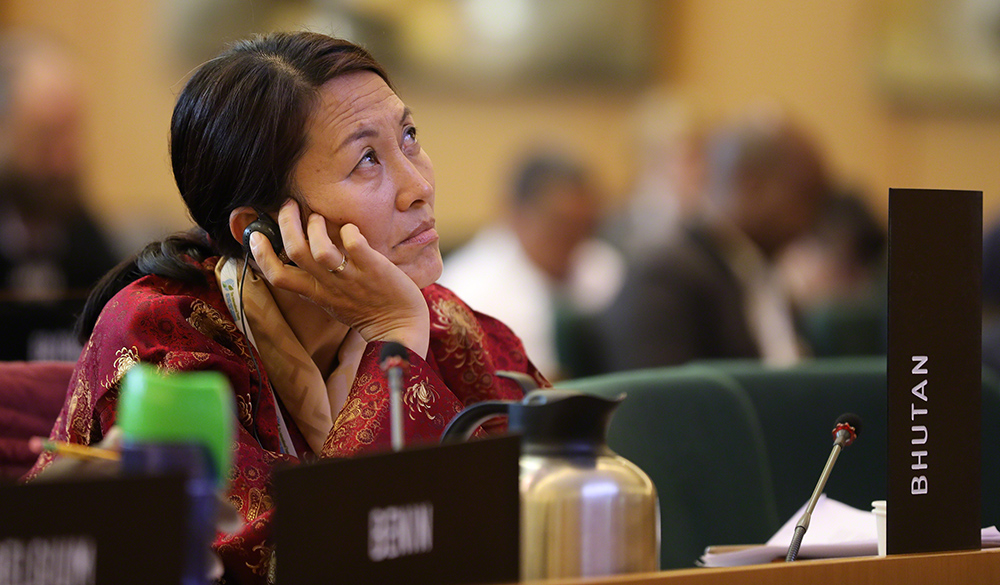
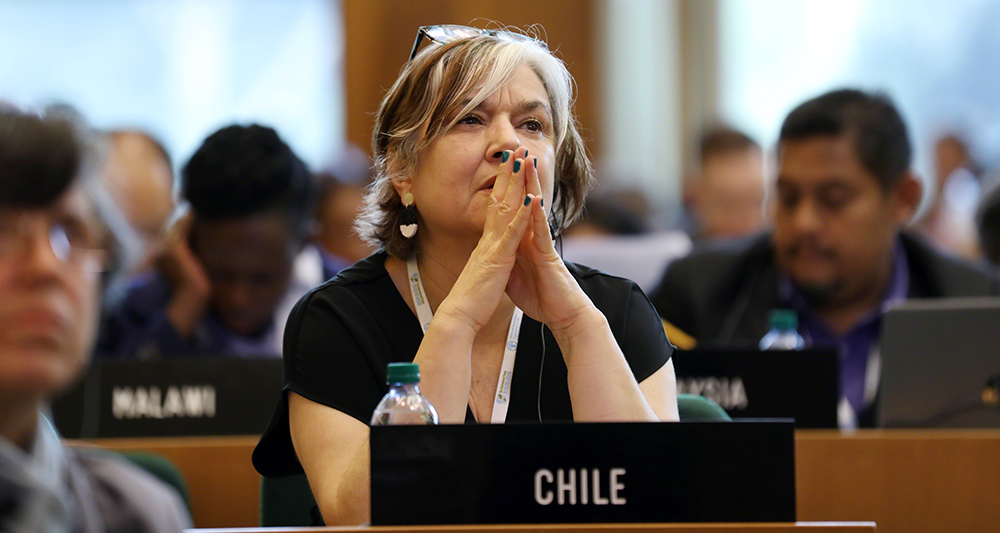
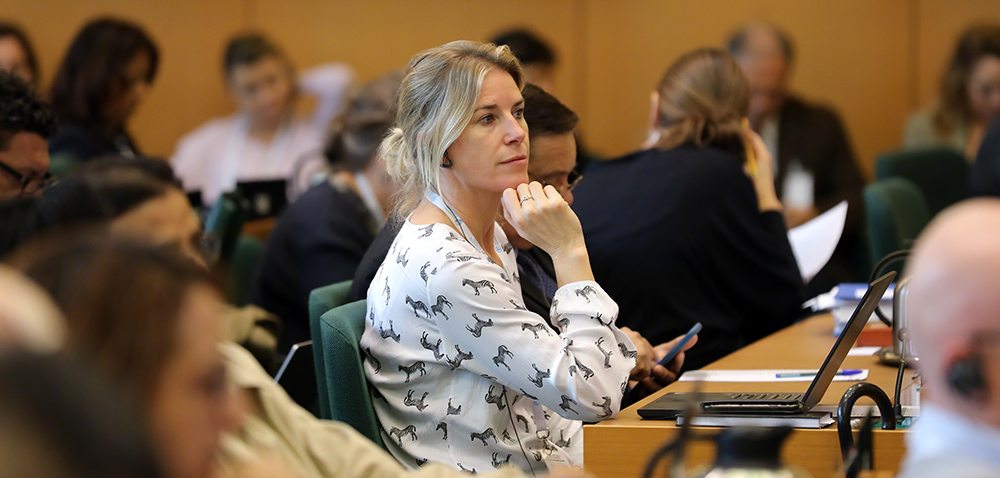
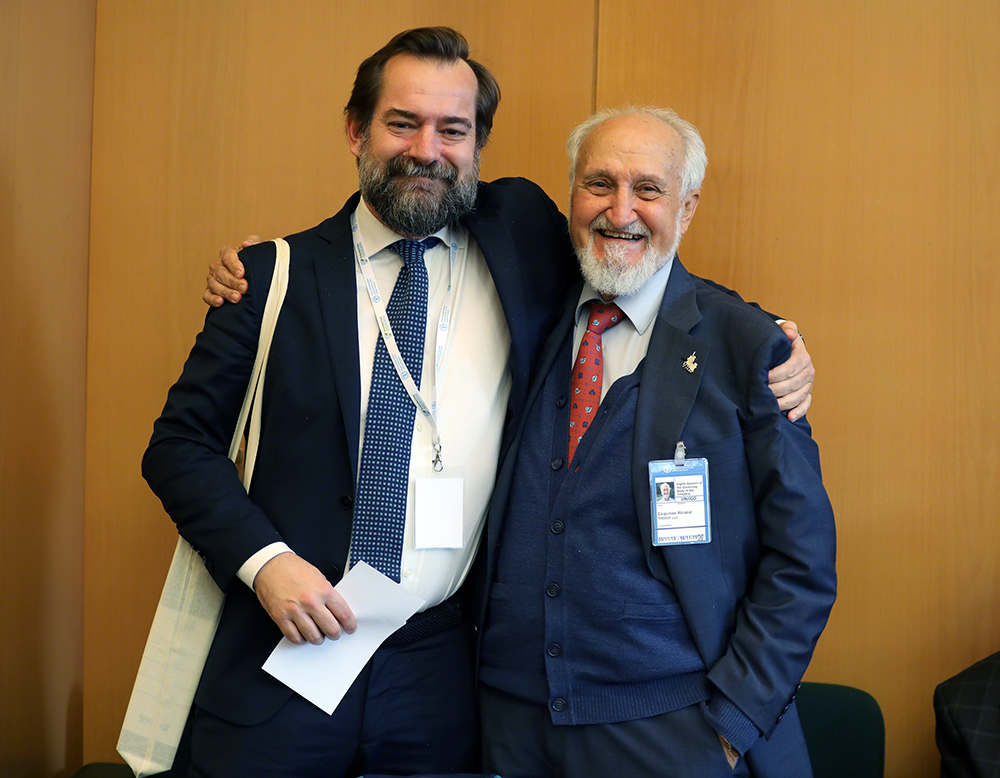
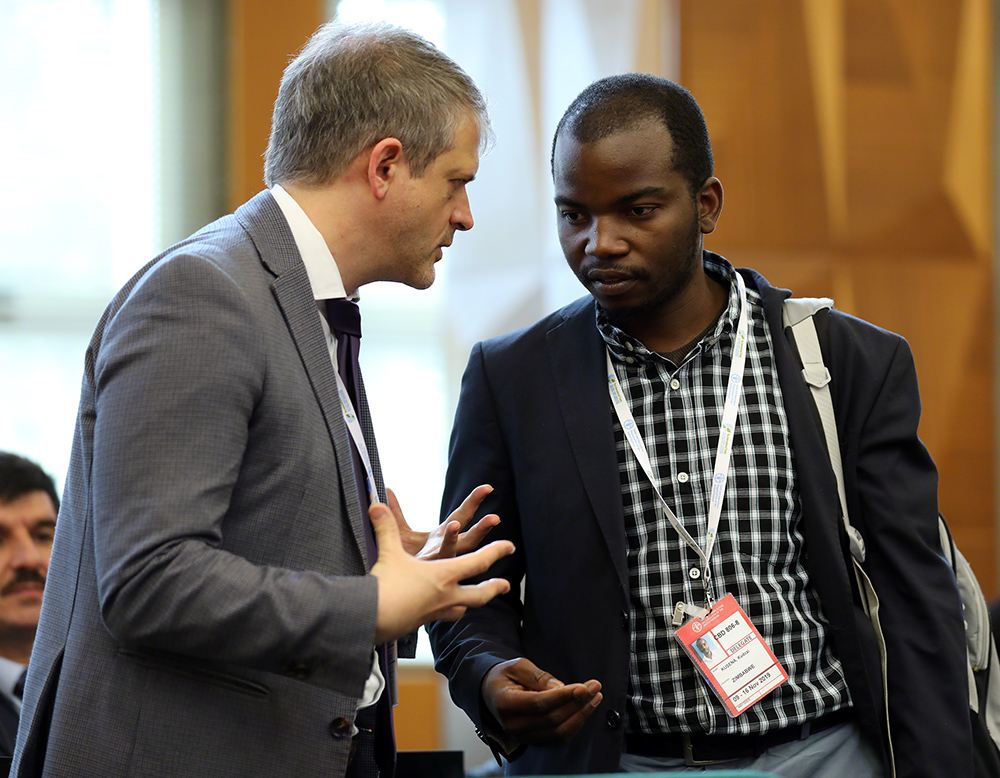
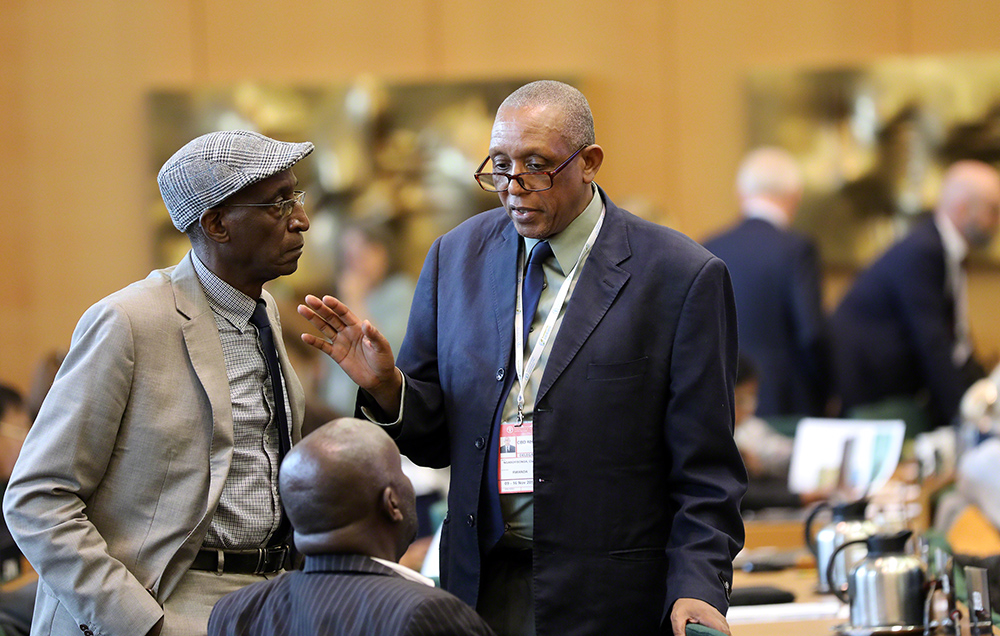
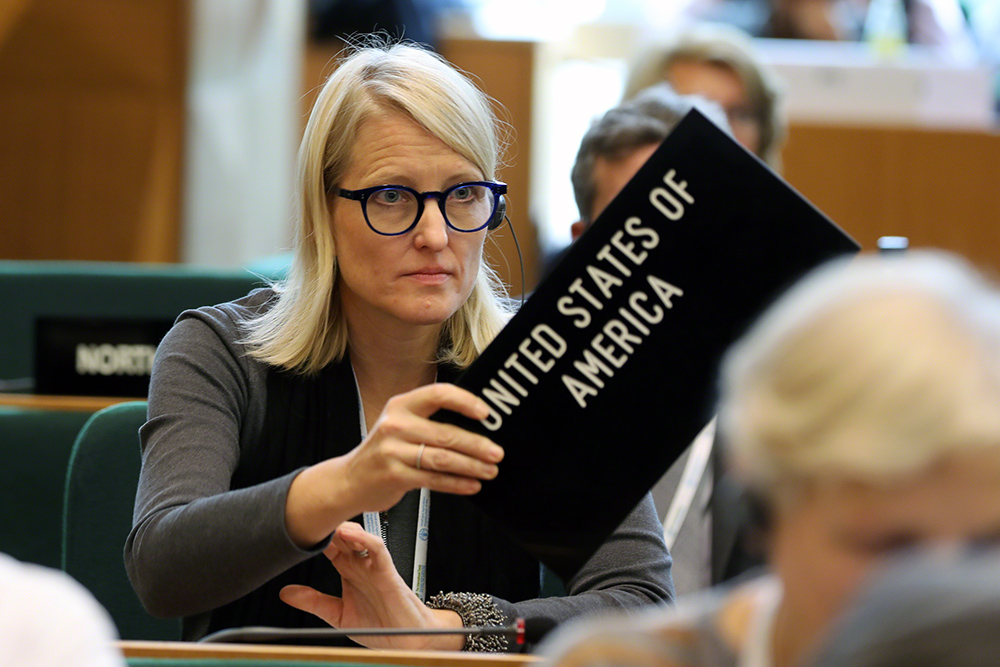
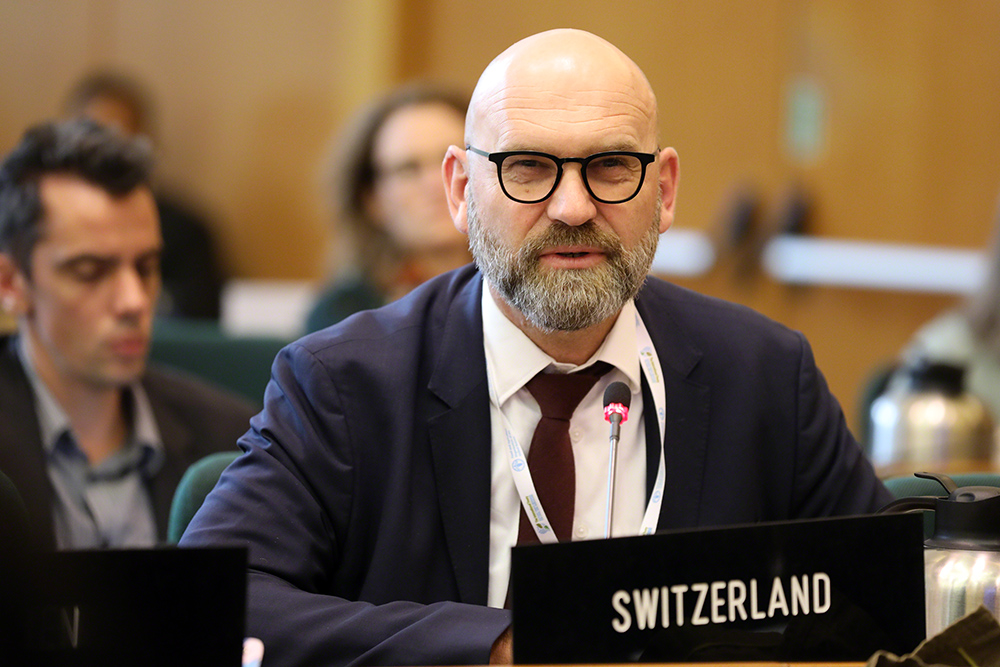
Highlights for Wednesday, 13 November 2019
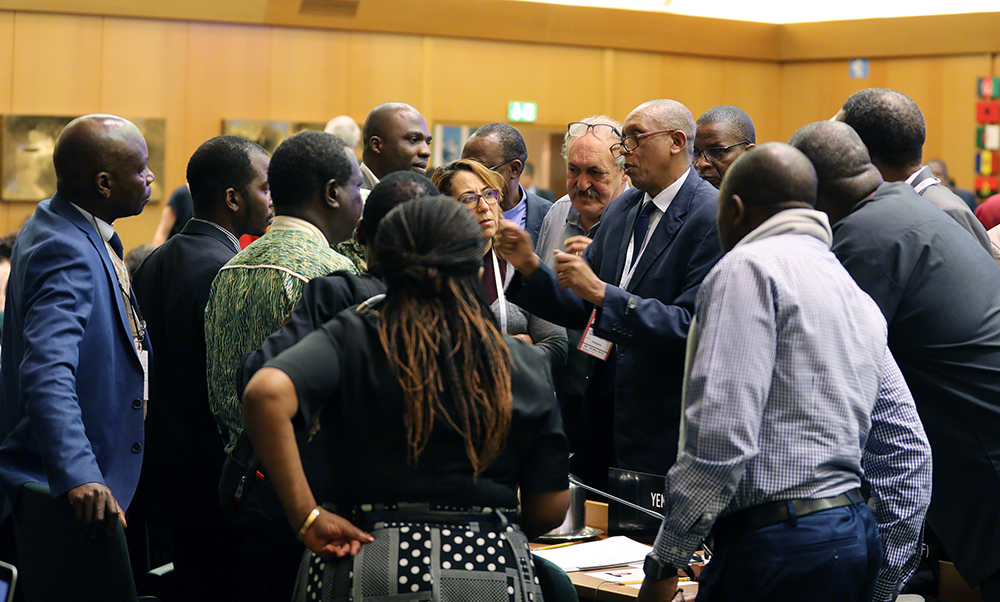
Delegates to the eighth session of the Governing Body (GB 8) of the International Treaty on Plant Genetic Resources for Food and Agriculture (ITPGRFA or Treaty) met in plenary throughout the day to:
- hear a report on the contribution of FAO to Treaty implementation;
- continue discussions on the Multi-Year Programme of Work (MYPOW), including digital sequence information (DSI) or genetic sequence data; and
- discuss cooperation with other instruments and organizations, including the FAO Commission on Genetic Resources for Food and Agriculture (CGRFA), the Global Crop Diversity Trust, and the Convention on Biological Diversity (CBD) and its Nagoya Protocol on access and benefit-sharing (ABS), among others.
FAO Assistant Director-General René Castro-Salazar highlighted the Treaty as one of FAO’s flagship achievements; and many regions expressed appreciation for FAO’s ongoing, steady support to member states. CGRFA Secretary Irene Hoffmann presented the CGRFA report, highlighting the Voluntary Guidelines for the Conservation and Sustainable Use of Farmers’ Varieties/Landraces. Delegates also addressed the report of the Global Crop Diversity Trust, highlighting Trust initiatives and discussing their prioritization. The CBD emphasized synergies and cooperation activities, and stressed the importance of all biodiversity-related conventions to engage in the development of the post-2020 global biodiversity framework.
Uncertainty prevailed on the way forward to address divergence of views on enhancing the Treaty’s Multilateral System of ABS. In the morning, Brazil, for G-77/China, called for urgently addressing the item in a contact group or other setting with interpretation. Later in the day however, GB 8 Chair Christine Dawson (US) reported that there is no consensus in the Bureau to establish a contact group on the item, and invited delegates to continue consulting informally. By the end of the afternoon plenary, she proposed convening a closed group, composed of two parties per region. A discussion ensued with focus on participation in the group, with many developing countries pointing to the importance of the item and to the need for transparency. It was eventually decided to convene the group in the evening, with two party representatives and two party observers per region.
The budget committee, an informal group on the Global Information System, and a contact group on farmers’ rights also met throughout the day.
For more details on the day’s negotiations and to hear what delegates said in the corridors, see our daily Earth Negotiations Bulletin.
+ Visit the web coverage for Wednesday, 13 November 2019
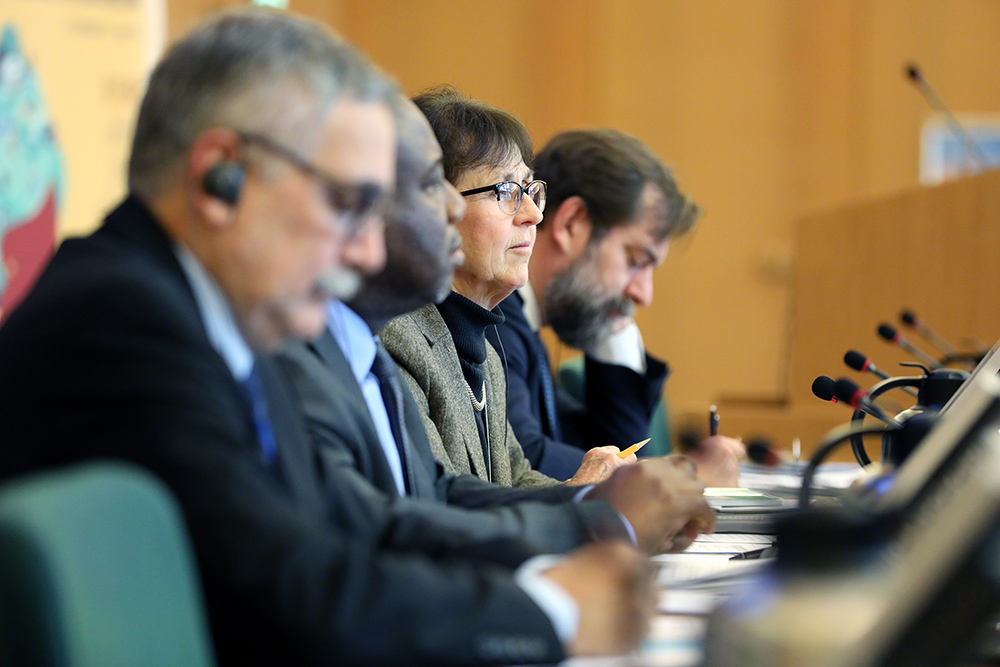
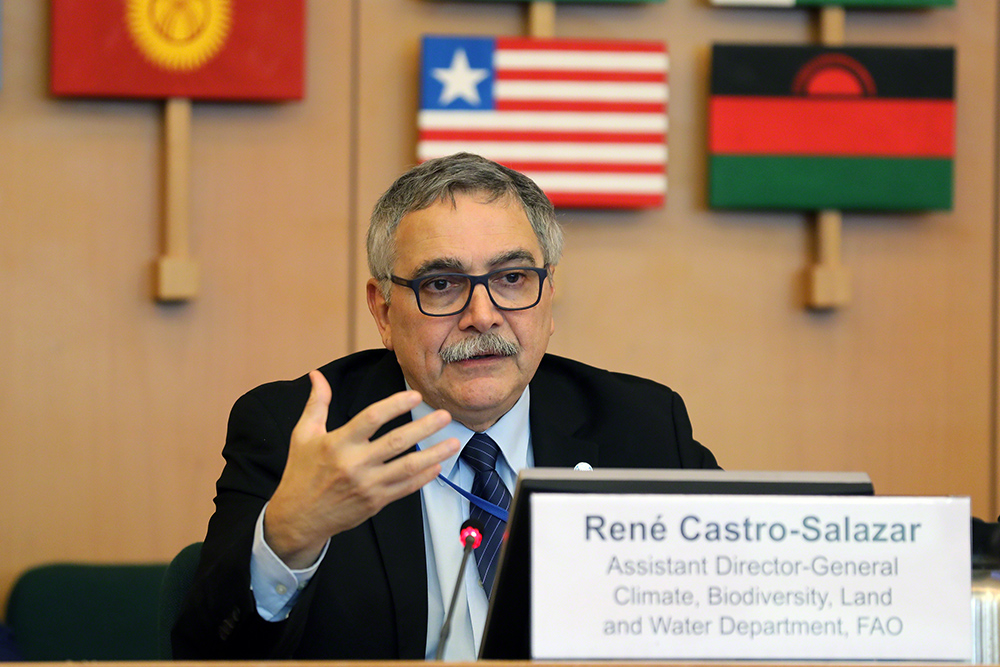
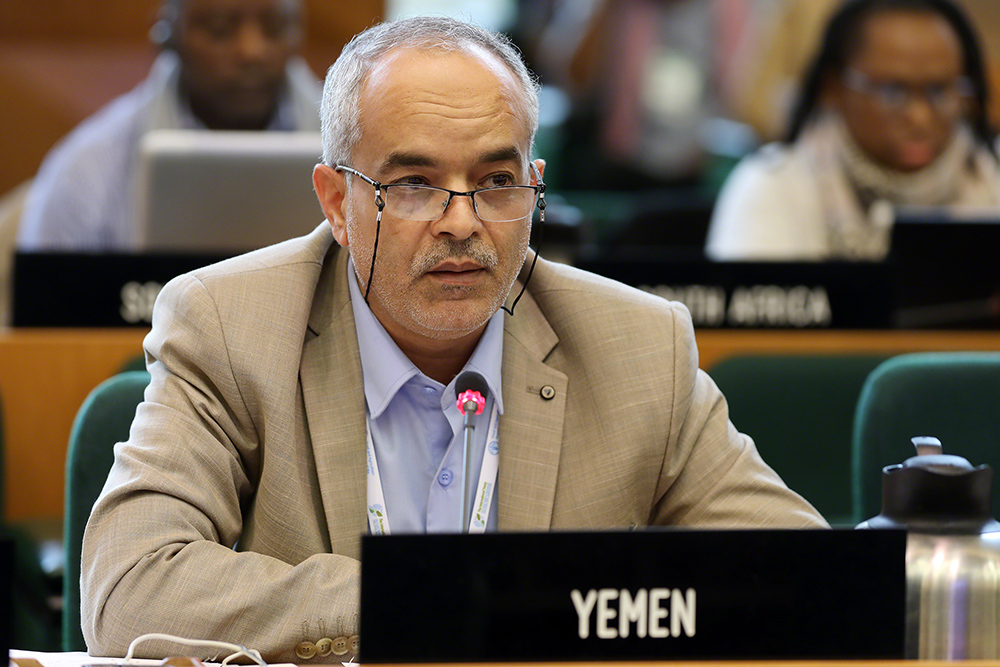
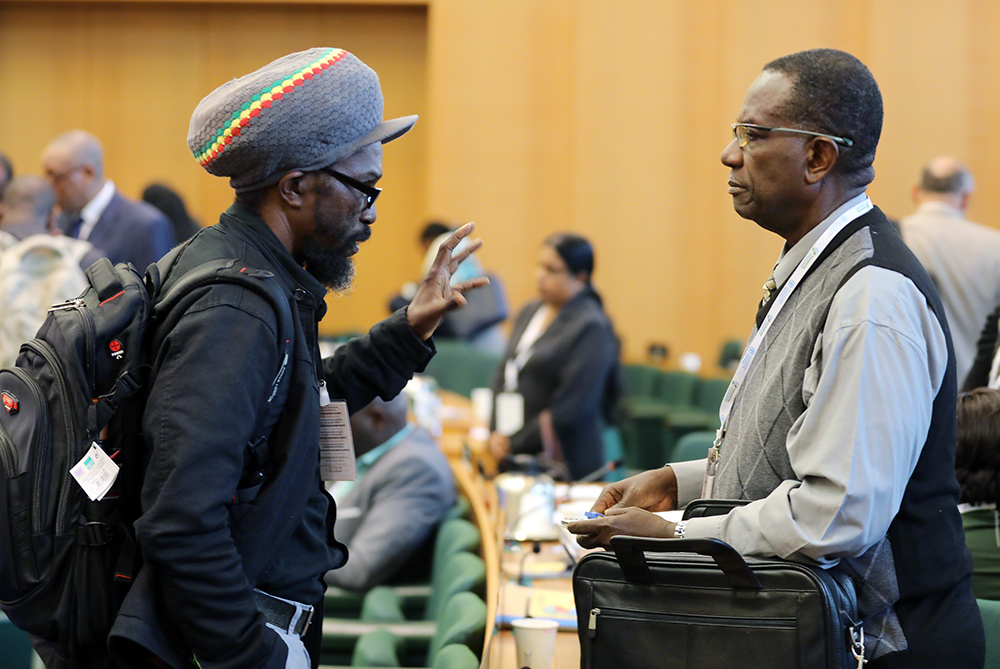
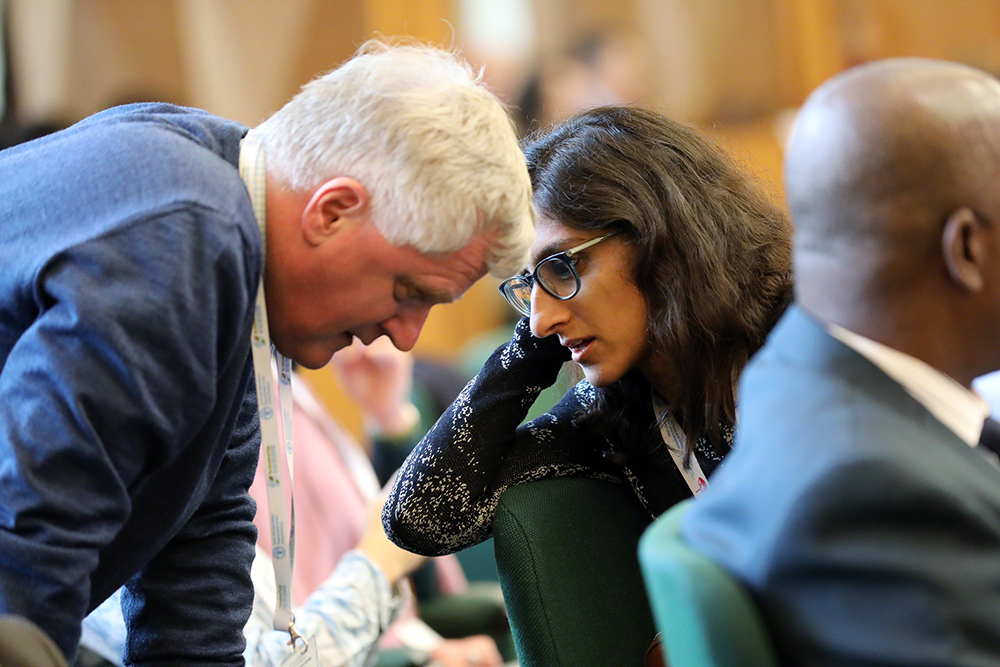
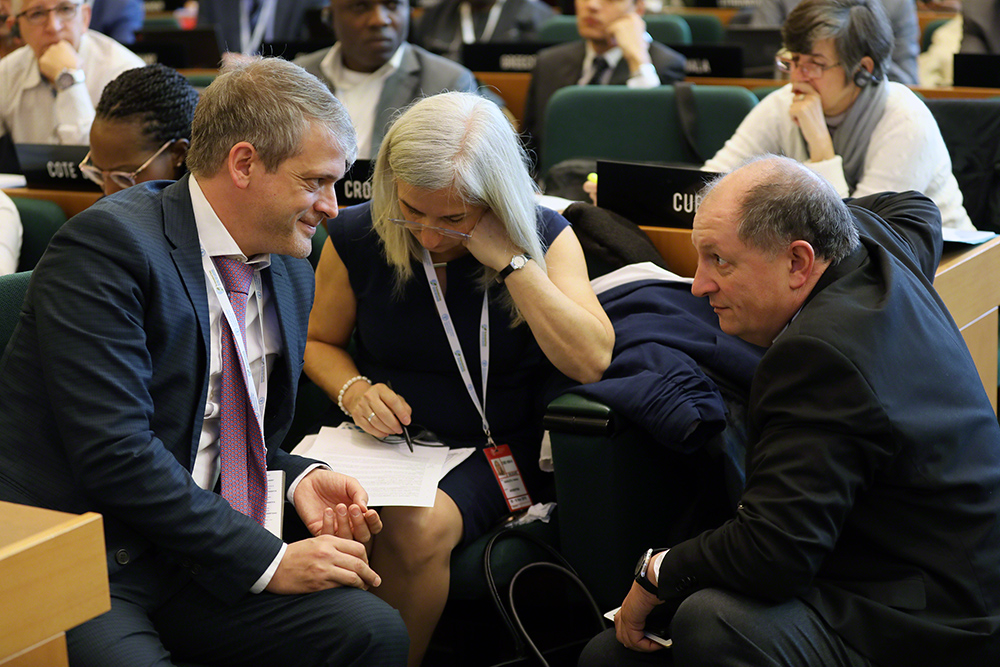
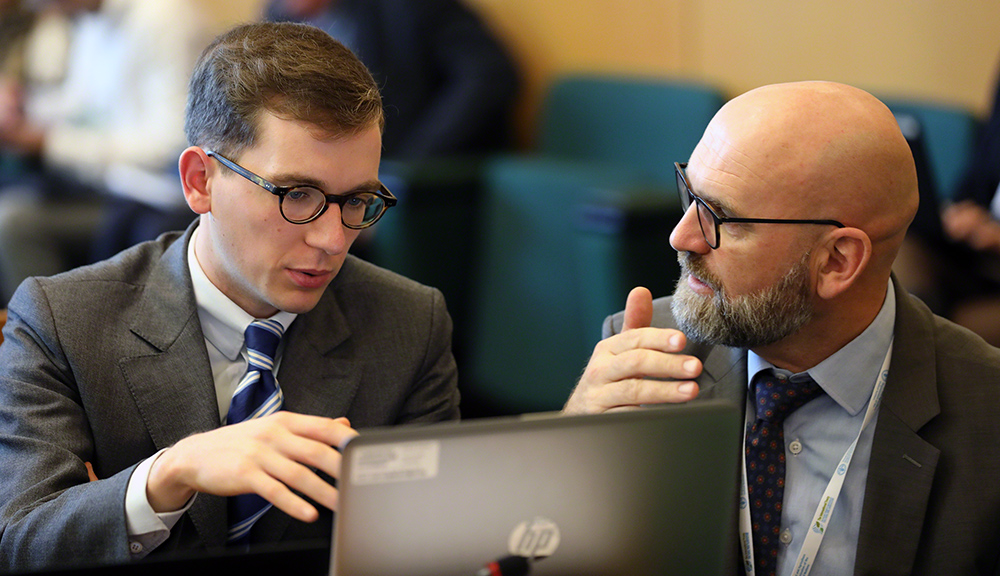
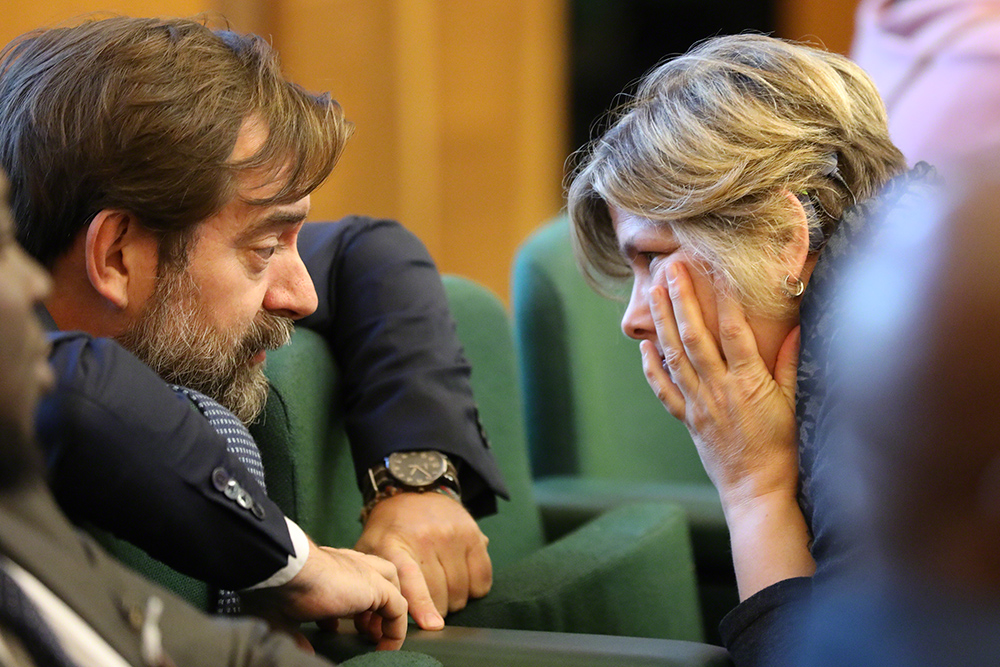
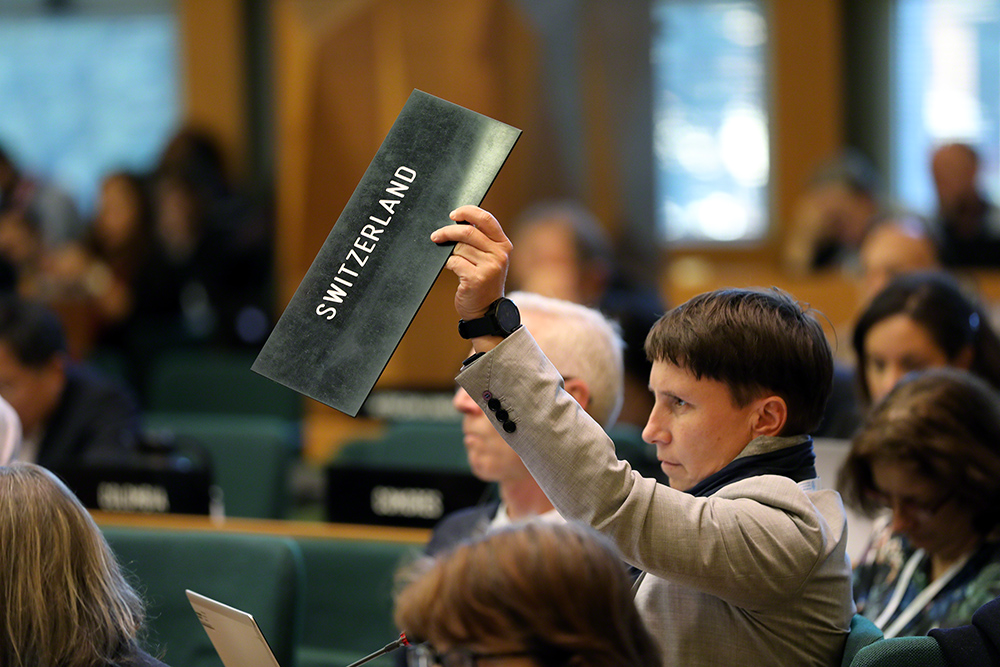
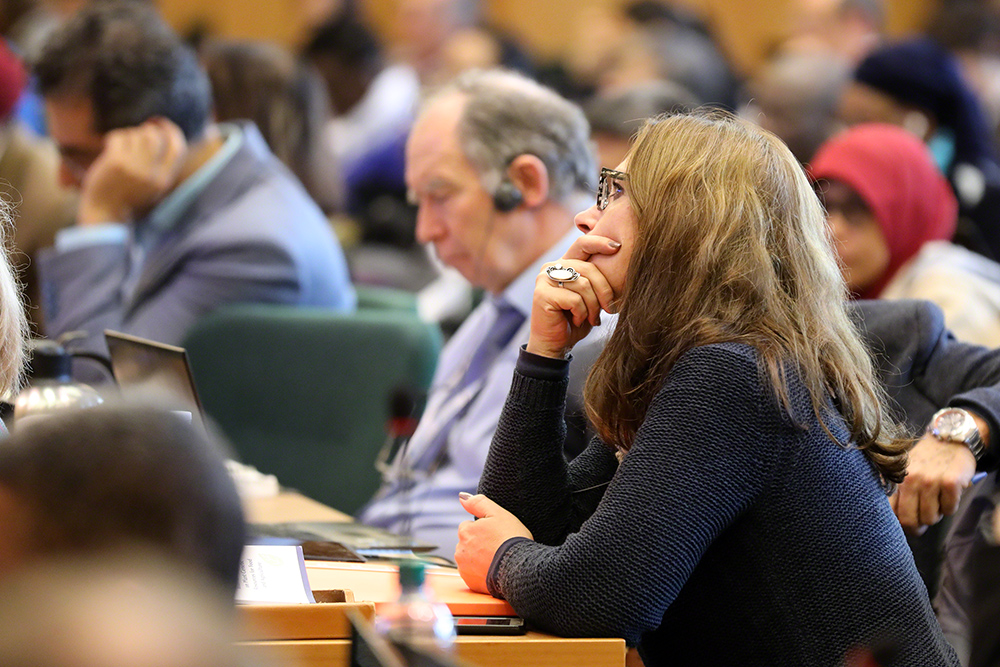
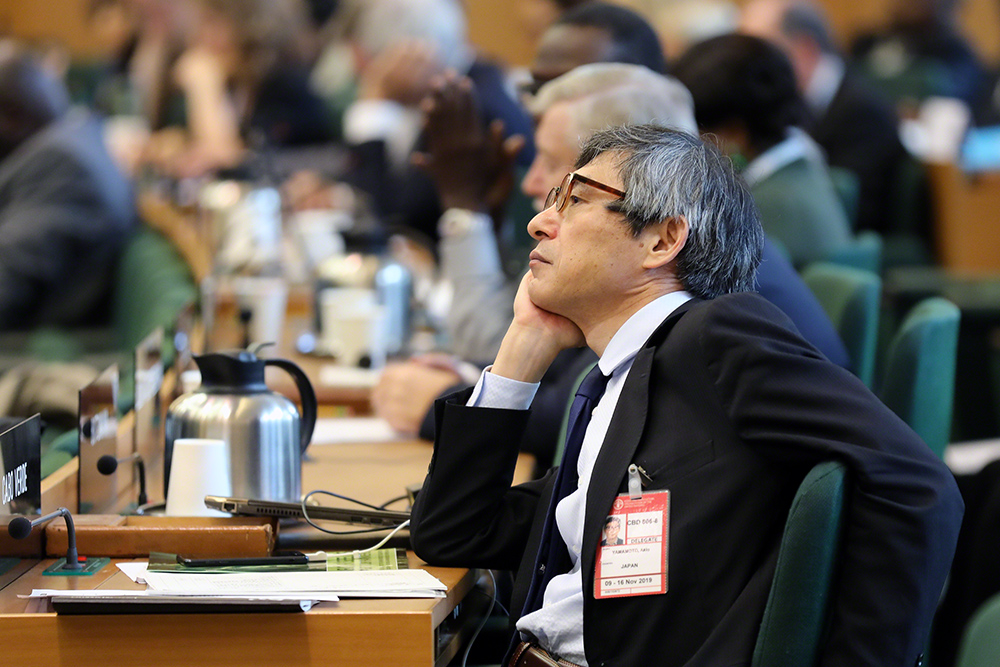
Highlights for Tuesday, 12 November 2019
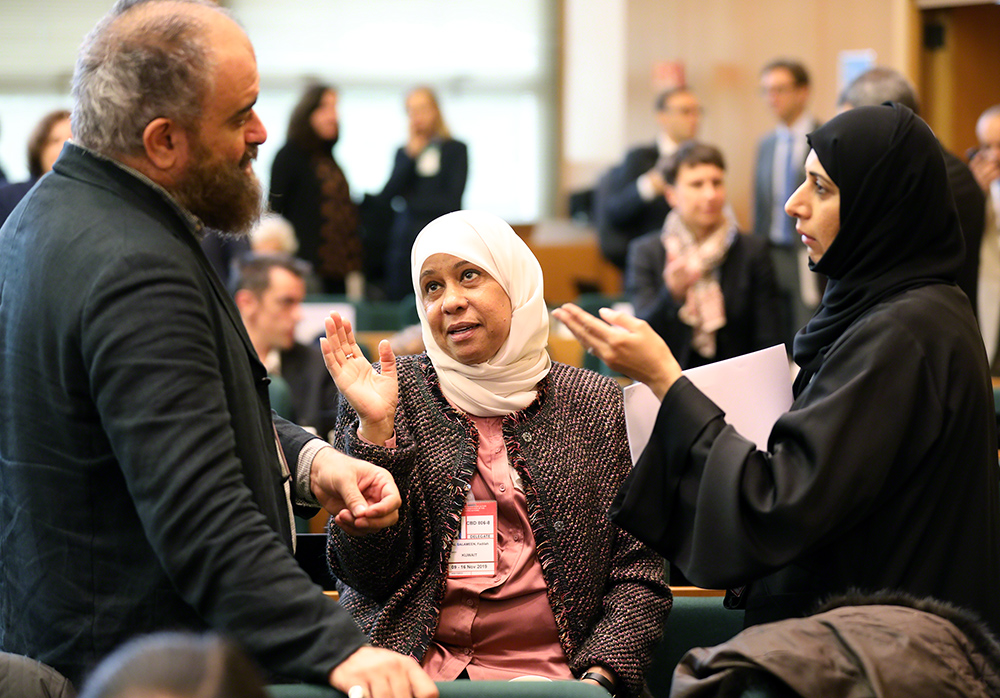
Delegates to the eighth session of the Governing Body (GB 8) of the International Treaty on Plant Genetic Resources for Food and Agriculture (ITPGRFA or Treaty) met in a morning plenary to exchange views on measures to enhance the functioning of the Multilateral System (MLS) of access and benefit-sharing.
During an exchange of views on the report of the Ad Hoc Open-ended Working Group to Enhance the Functioning of the MLS, divergent positions were expressed on, among other issues:
- addressing digital sequence information (DSI) or genetic sequence data as part of the revised Standard Material Transfer Agreement (SMTA), and providing for benefit-sharing obligations from the use of such data;
- expanding the list of crops in the MLS (Annex I of the Treaty); and,
- prioritizing the subscription system under the revised SMTA, or maintaining a possibility for single access to MLS material.
GB Chair Christine Dawson (US) encouraged parties to continue informal consultations, noting that the Bureau will discuss the way forward.
In the afternoon, plenary addressed items related to the implementation and enhancement of the Funding Strategy. Delegates addressed:
- developed country finance-related obligations;
- user-based contributions to the Benefit-sharing Fund;
- the new funding strategy 2020-2025, including target ranges for the Benefit-sharing Fund, prepared by the Ad Hoc Advisory Committee on the Funding Strategy; and
- the status of the Committee on the Funding Strategy.
Informal consultations on the items were held in the evening.
Discussions on the Global Information System focused on use of digital object identifiers (DOIs), including for tracking germplasm and related information. Plenary then addressed farmers’ rights, in particular an inventory of national measures, best practices, and lessons learned for their realization prepared by an Ad Hoc Technical Expert Group, as well as terms for extension of the expert group’s mandate. Discussions continued into the night.
For more details on the day’s negotiations and to hear what delegates said in the corridors, see our daily Earth Negotiations Bulletin.
+ Visit the web coverage for Tuesday, 12 November 2019
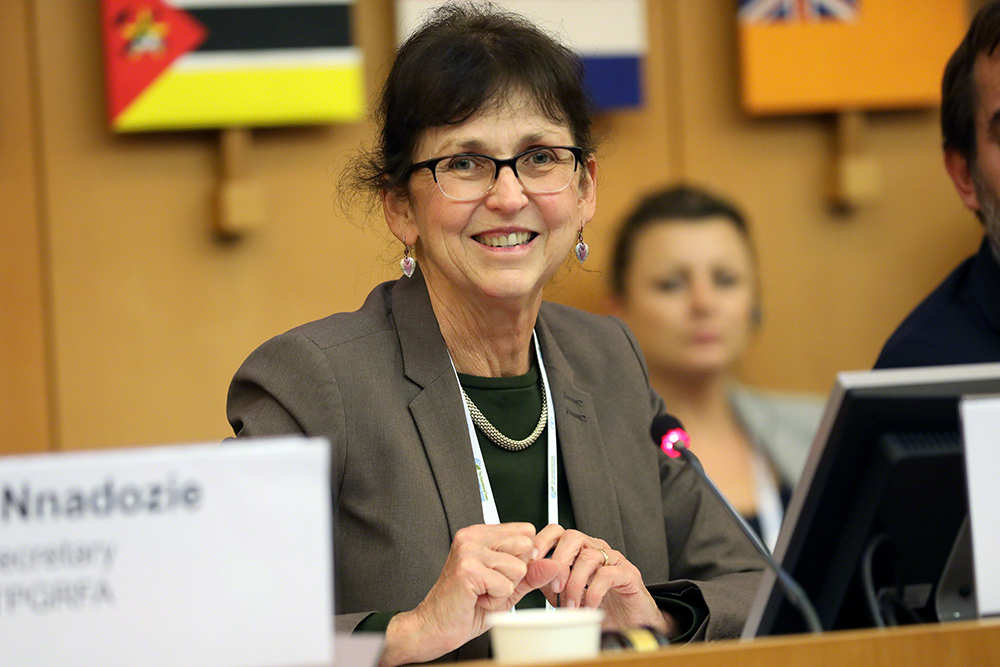
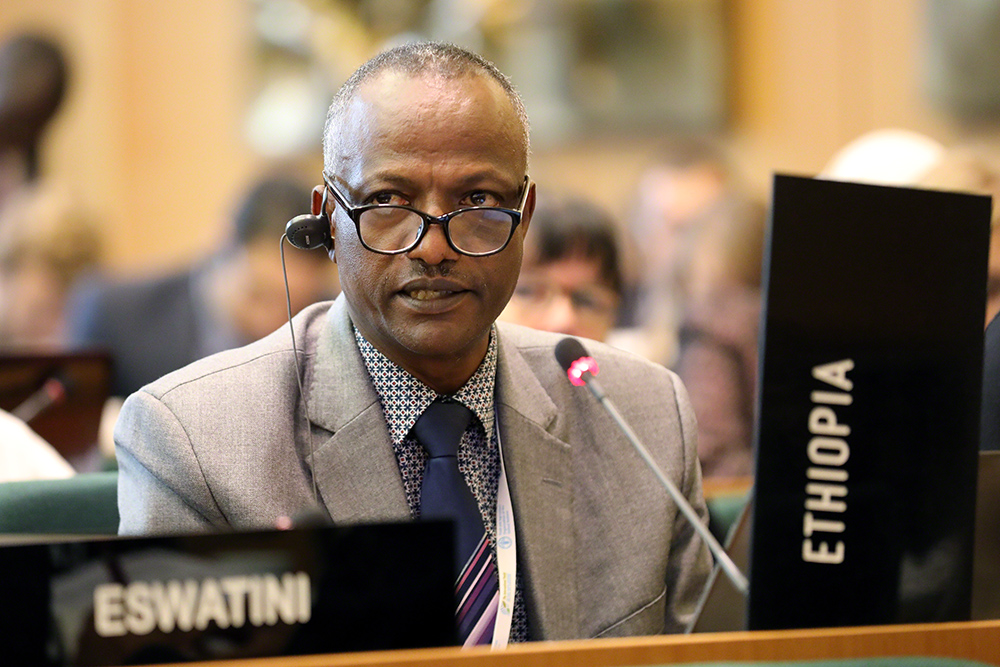
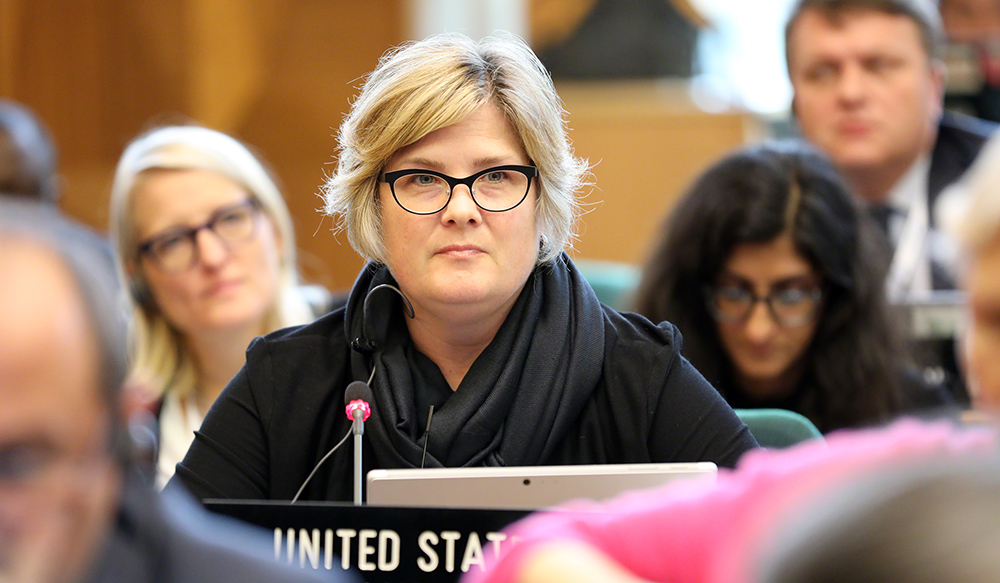
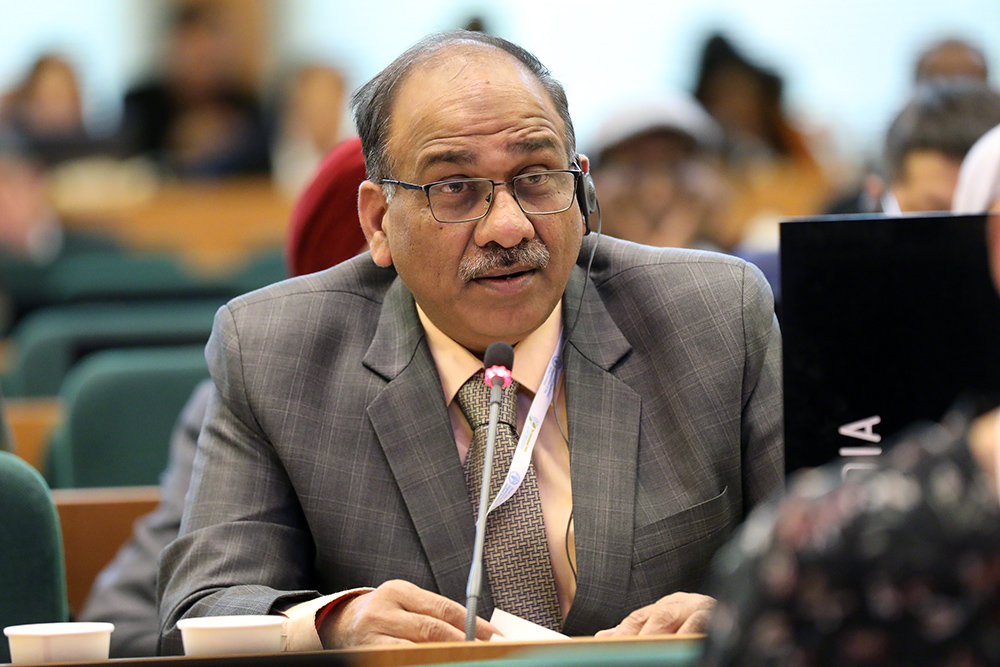
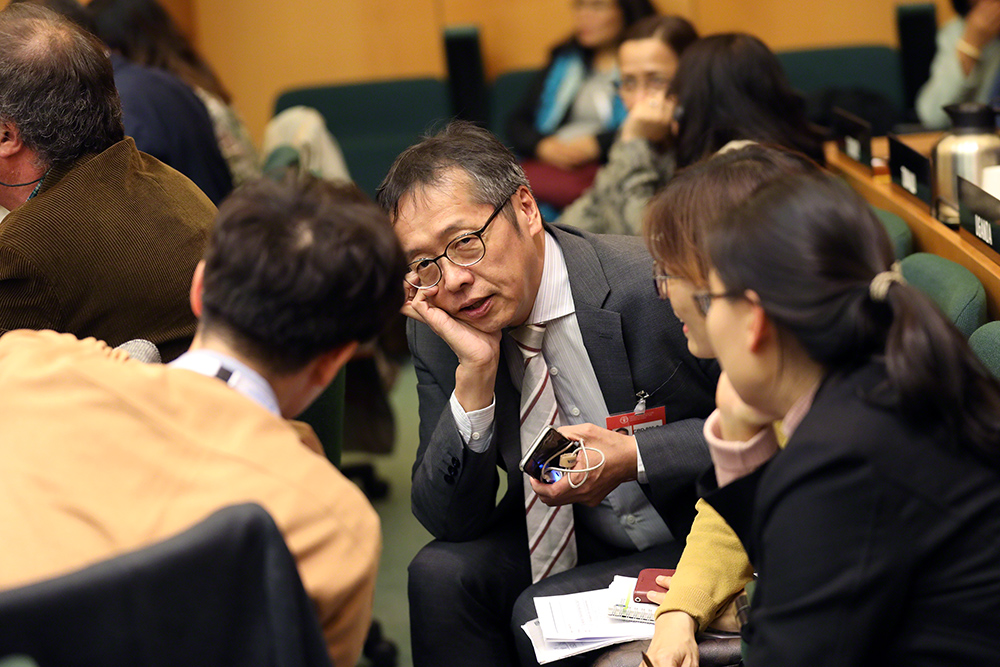
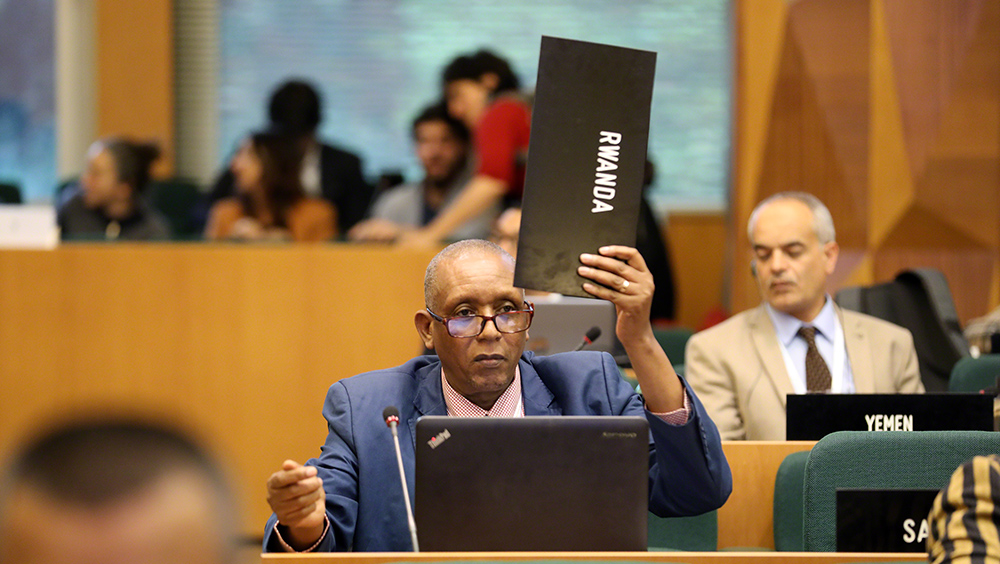
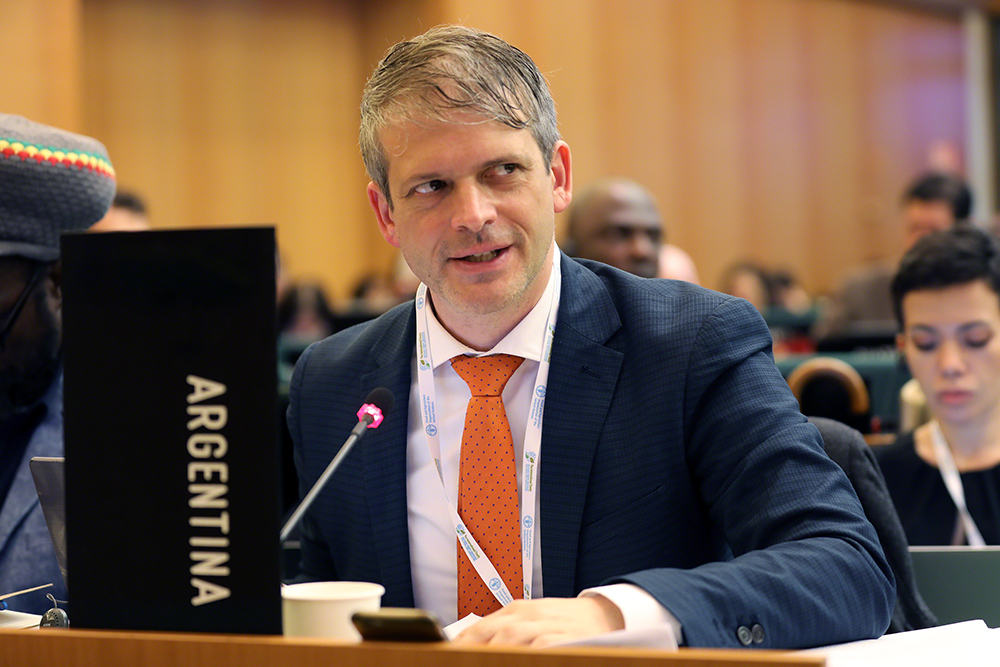
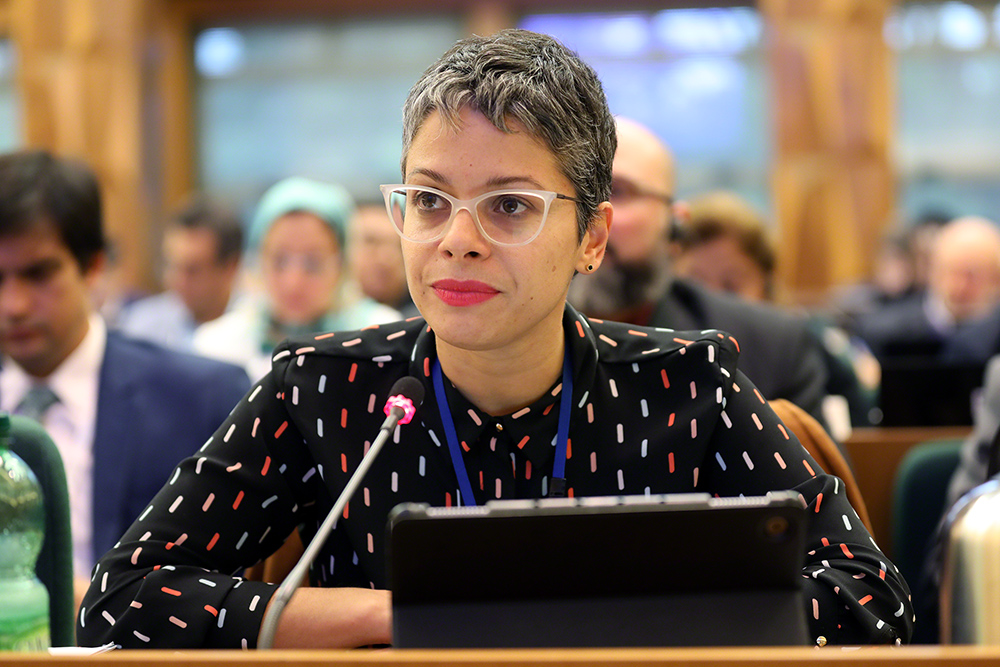
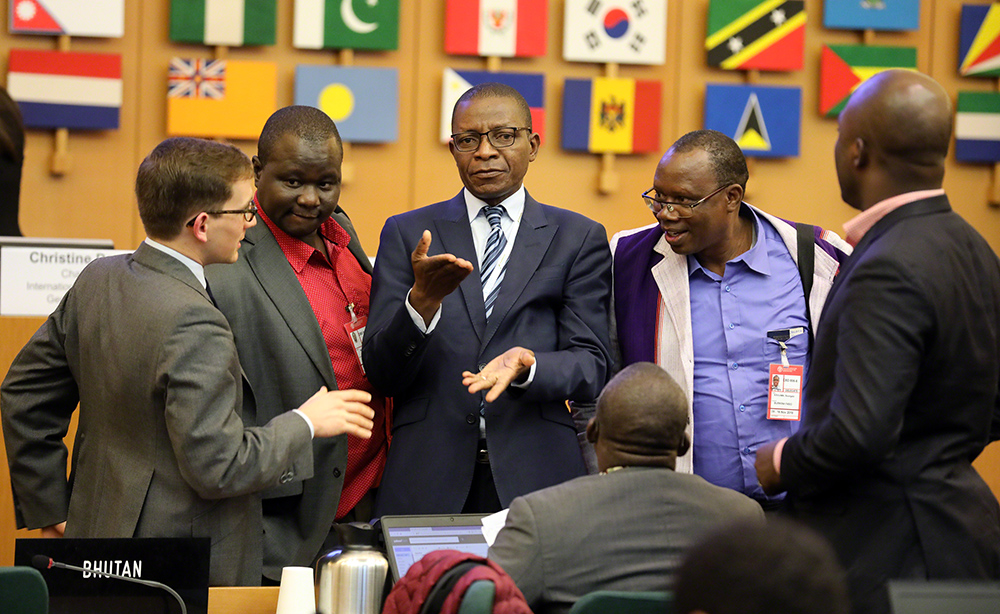
Highlights for Monday, 11 November 2019
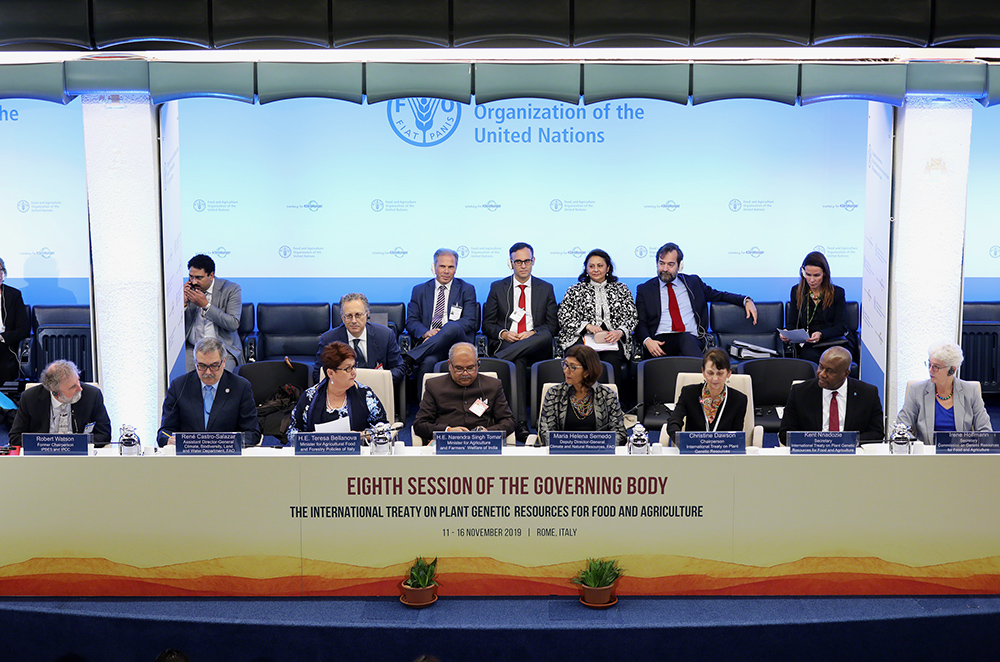
Delegates to the eighth session of the Governing Body (GB 8) of the International Treaty on Plant Genetic Resources for Food and Agriculture (ITPGRFA or Treaty) met in plenary throughout the day to hear opening and regional statements, address organizational matters, and initiate discussions on the Multilateral System (MLS) of access and benefit-sharing.
In an opening ceremony, GB 8 Chair Christine Dawson (US) invited participants to observe a moment of silence for Armistice/Remembrance Day, including for those who “still suffer from conflict, oppression, and hunger.” FAO Deputy Director-General Maria Helena Semedo stressed that “crop biodiversity is a treasure of human civilization and must remain a legacy for generations to come.”
Narendra Singh Tomar, Minister of Agriculture and Farmers' Welfare, India, called for an “operational, pragmatic, future-ready, and flexible” benefit-sharing framework, taking into account genetic sequence data and bridging the divide between the global North and South. He announced India’s offer to host the next GB session in 2021.
Teresa Bellanova, Minister of Agricultural, Food and Forestry Policies, Italy, reiterated Italy’s commitment to a world free of hunger and to benefit-sharing with a focus on diversification, smallholder farmers, and women as custodians of genetic resources.
Keynote speaker Robert Watson, former Chair of both the Intergovernmental Science-Policy Platform on Biodiversity and Ecosystem Services (IPBES) and the Intergovernmental Panel on Climate Change (IPCC), emphasized the crucial importance of biodiversity for the resilience of agricultural systems, and highlighted the need for: rapid transformation of our systems; cross-sectoral management at all levels; agro-ecological practices; and inclusive governance structures that address the current lack of trust within and between stakeholders.
Plenary then discussed the draft framework for a capacity development strategy for the Treaty, a draft resolution on the 15th Anniversary of the Treaty’s entry into force, and implementation and operations of the MLS.
Plenary then heard from Hans Hoogeveen (Netherlands) and Javad Mozafari (Iran), Co-Chairs of the Working Group on enhancing the functioning of the MLS, who suggested suspending deliberations on the item until questions on digital sequence information related to plant genetic resources in the Treaty framework are resolved. Following a brief discussion, deliberations were suspended to allow for informal and regional consultations on possible ways forward.
For more details on the day’s negotiations and to hear what delegates said in the corridors, see our daily Earth Negotiations Bulletin.
+ Visit the web coverage for Monday, 11 November 2019
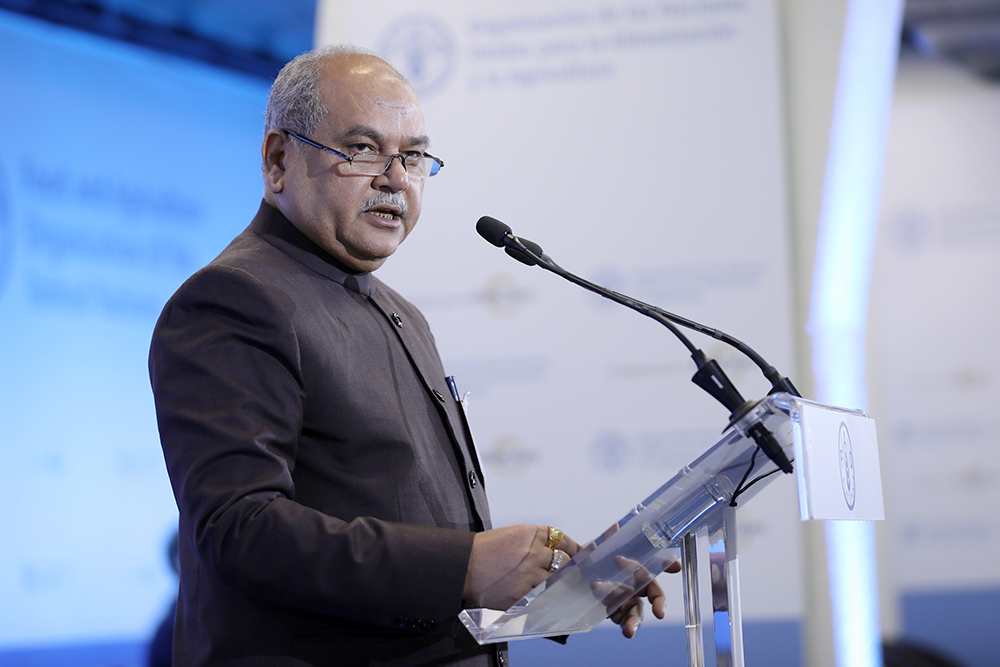
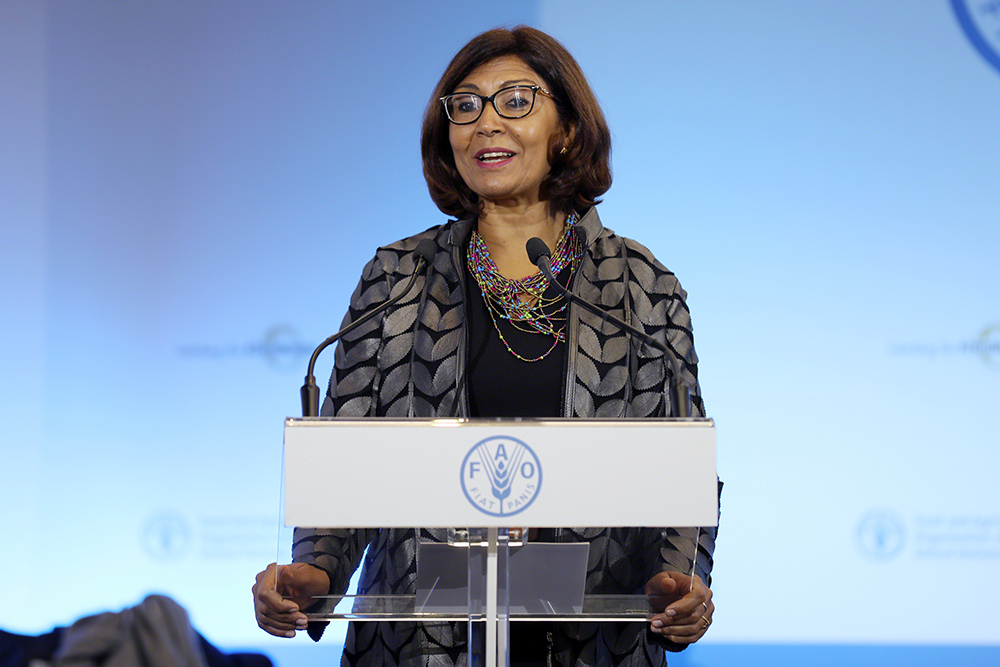
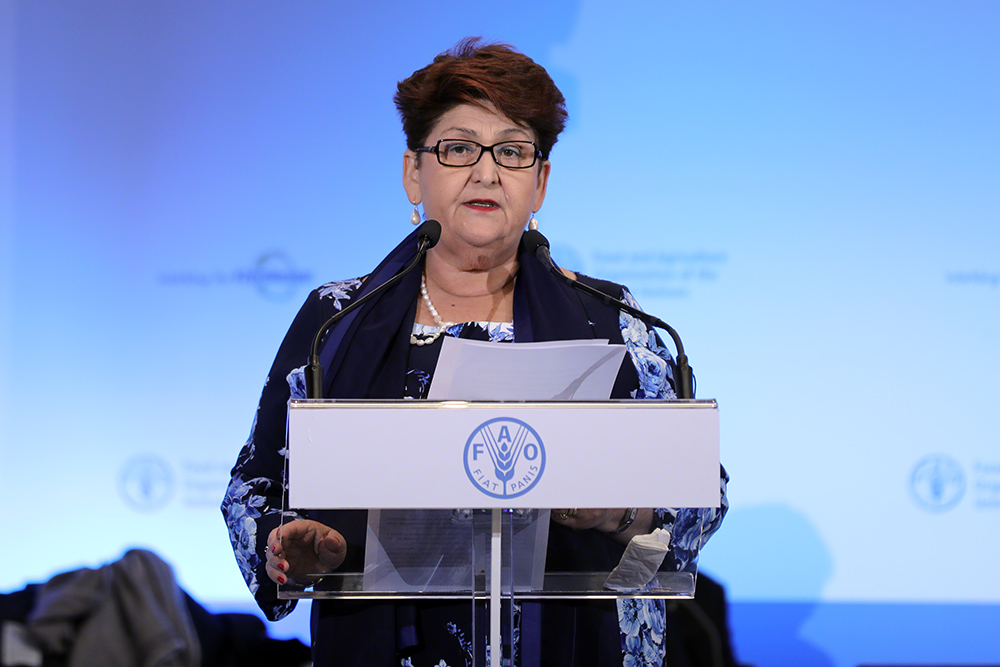
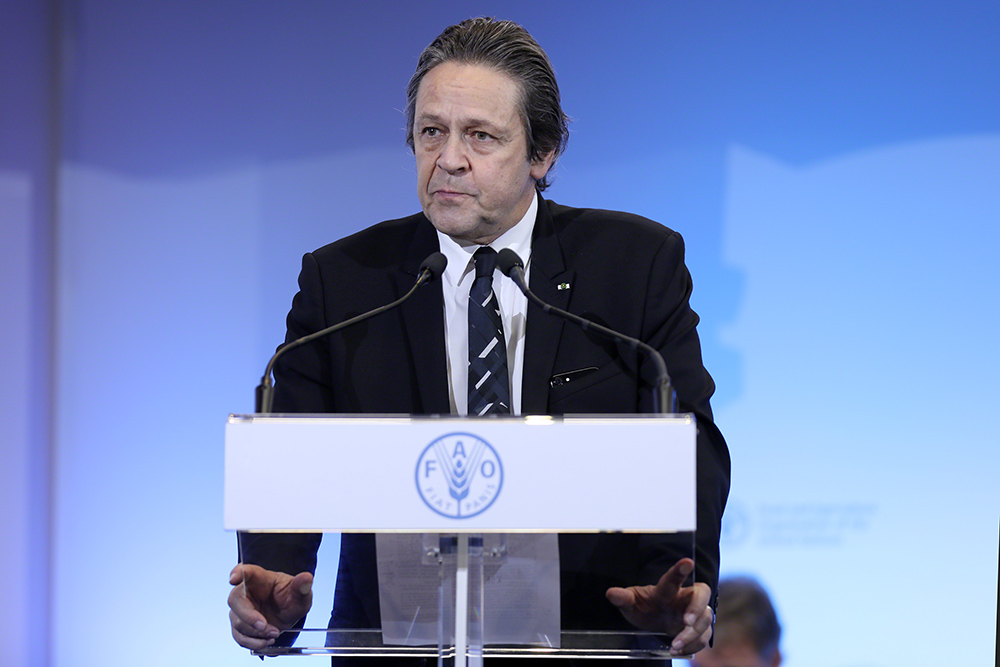
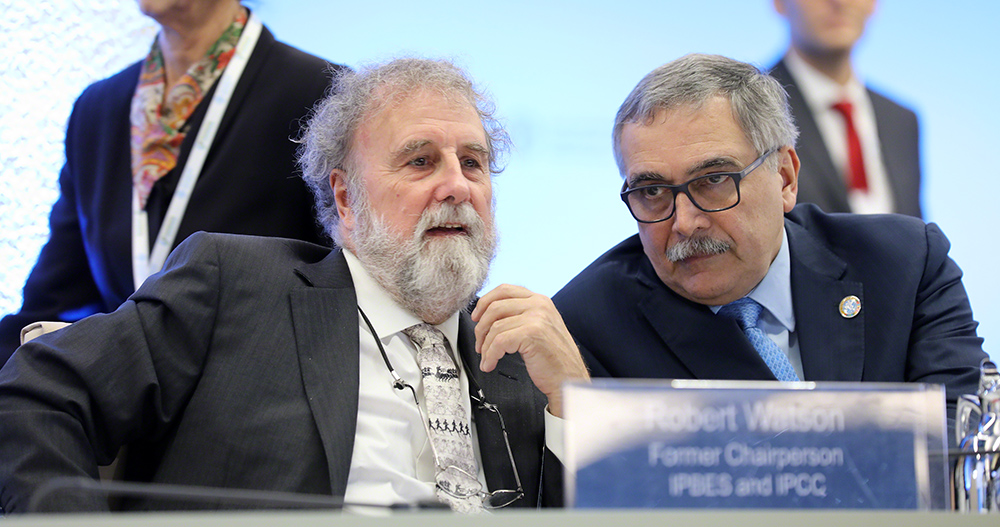
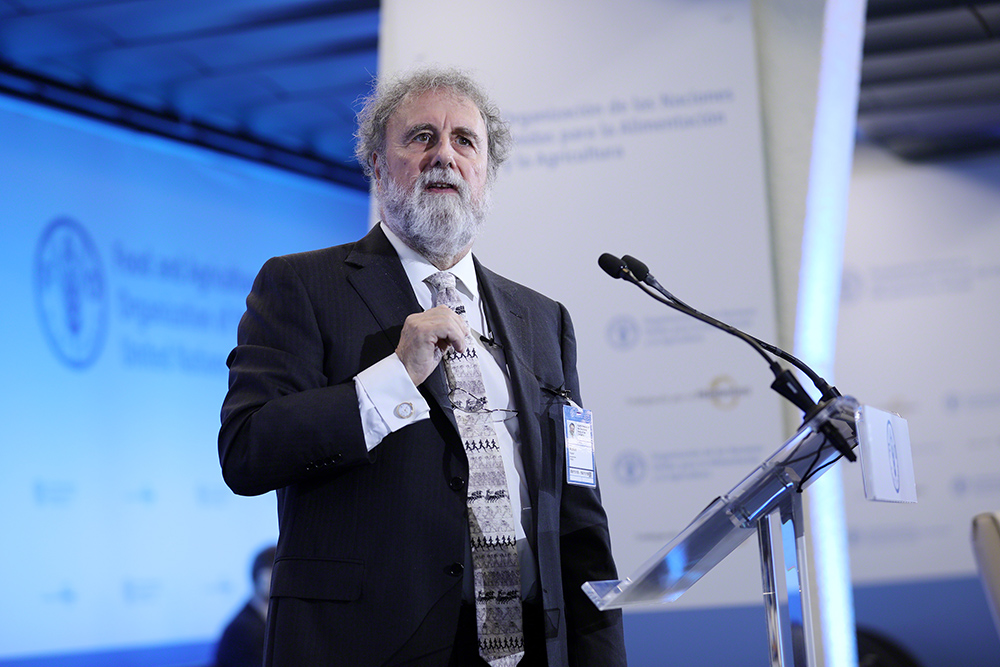
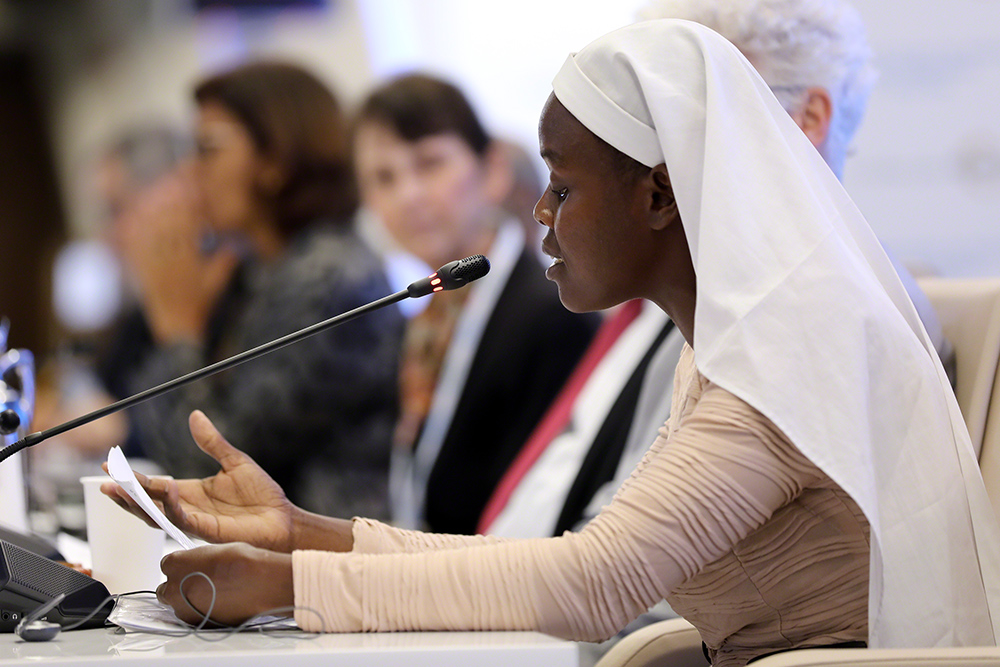
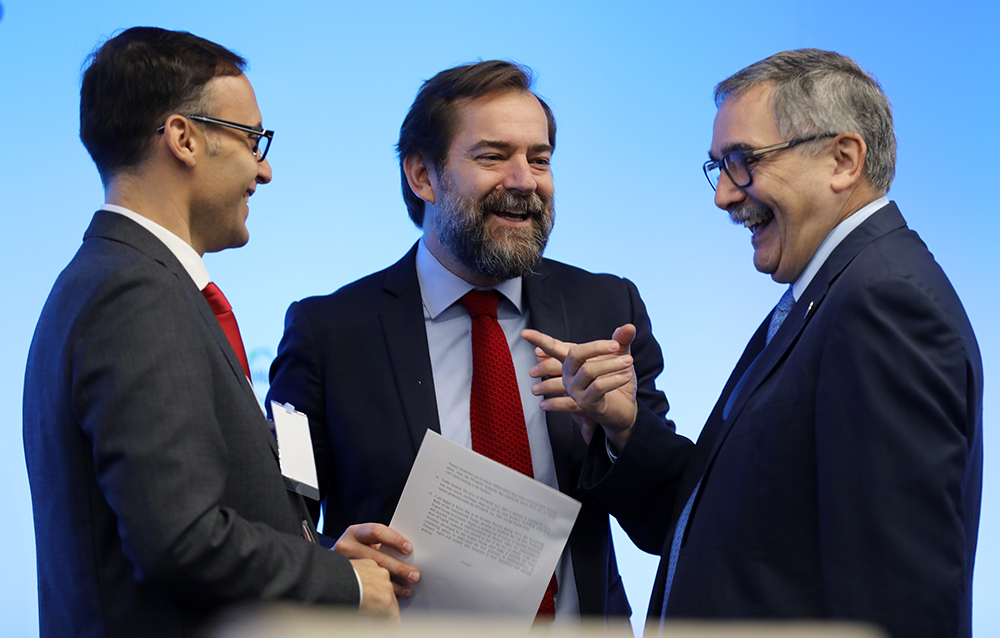
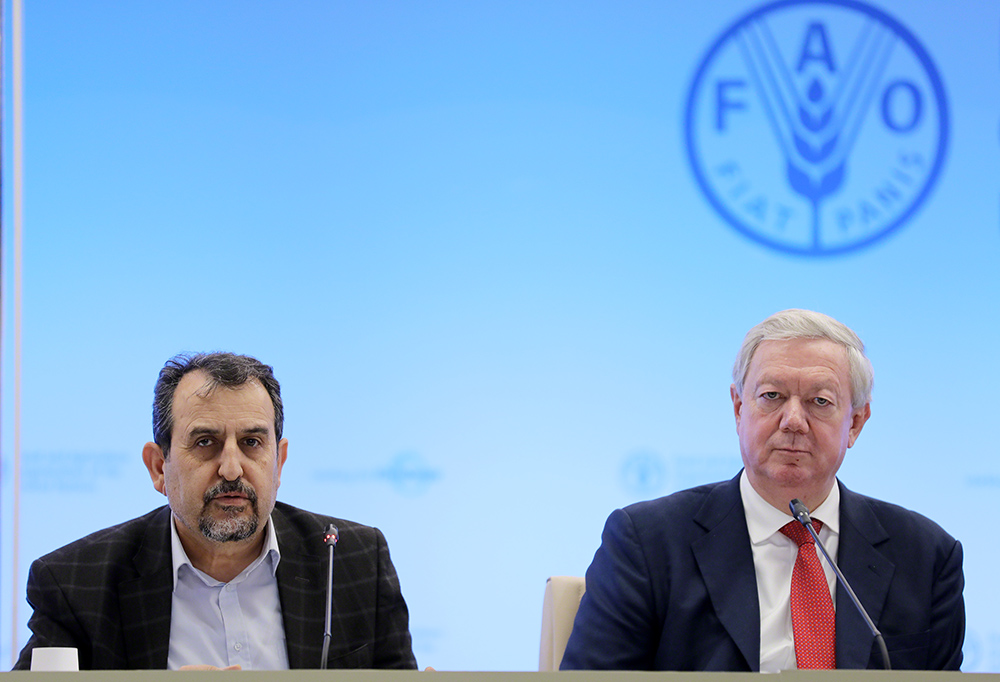
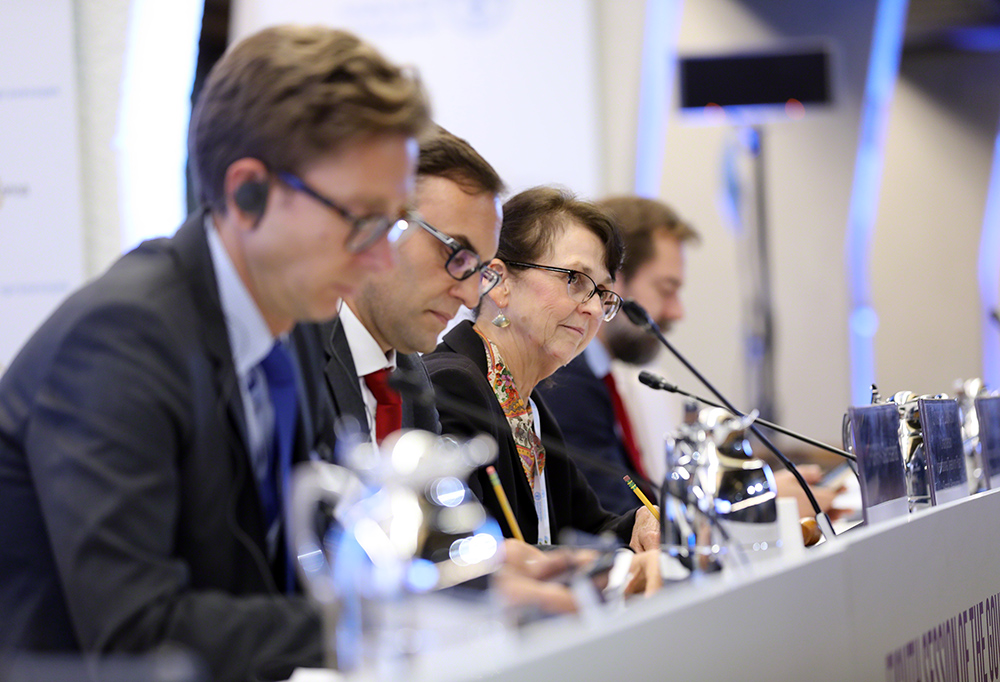
DOWNLOAD ENB REPORTS
Governing Body Resources
- Website for the 8th Session of the Governing Body
- Agenda for the 8th Session of the Governing Body
- Documents for the 8th Session of the Governing Body
- Side Events During the 8th Session of the Governing Body
- Website for the 7th Session of the Governing Body
IISD ENB/ENB+ Meeting Coverage
- Resumed 9th Meeting of the Ad Hoc Open-ended Working Group to Enhance the Functioning of the Multilateral System of Access and Benefit-sharing (OWG-EFMLS-9) of the International Treaty on Plant Genetic Resources for Food and Agriculture, 23-26 October 2019, FAO headquarters, Rome, Italy
- OWG-EFMLS-9, 17-21 June 2019, FAO headquarters, Rome, Italy
- OWG-EFMLS-8, 10-12 October 2018, FAO headquarters, Rome, Italy
- GB 7, 30 October - 3 November 2017, Kigali, Rwanda
IISD Resources
- Subscription Page for IISD Reporting Services Peer-to-Peer Mailing Lists (including BIODIVERSITY-L, SDG, CLIMATE-L, OCEANS-L, and Regional Updates)
- SDG Update Newsletter - A compilation of news, commentary and upcoming events published on the SDG Knowledge Hub
- SDG Knowledge Hub - An Online Resource Center for News and Commentary Regarding the Implementation of the United Nations’ 2030 Agenda for Sustainable Development, including all 17 Sustainable Development Goals (SDGs)
- Linkages Update - International Environment and Sustainable Development News
 Specific funding for IISD Reporting Services coverage of the 8th Session of the Governing Body has been provided by the Secretariat of the International Treaty on Plant Genetic Resources for Food and Agriculture
Specific funding for IISD Reporting Services coverage of the 8th Session of the Governing Body has been provided by the Secretariat of the International Treaty on Plant Genetic Resources for Food and Agriculture